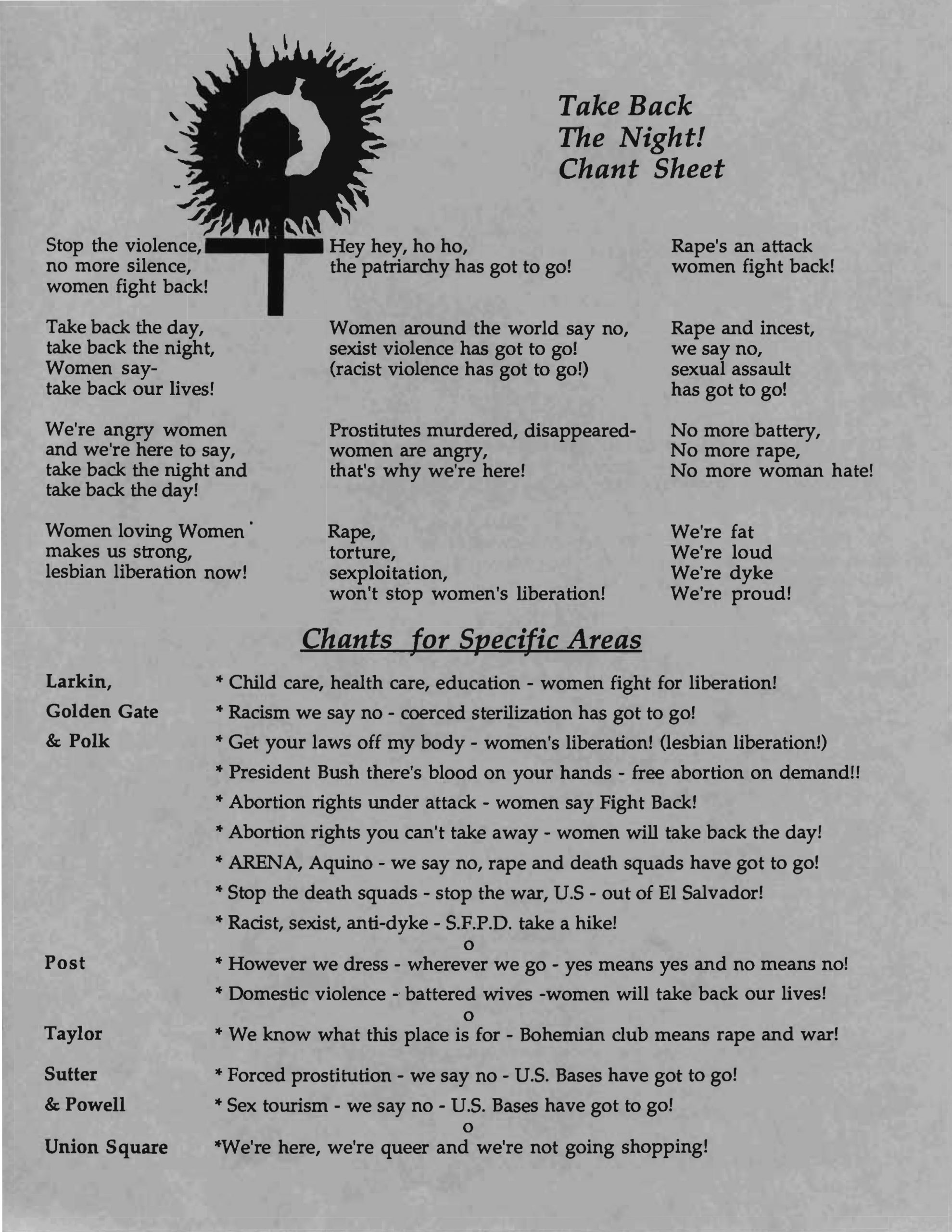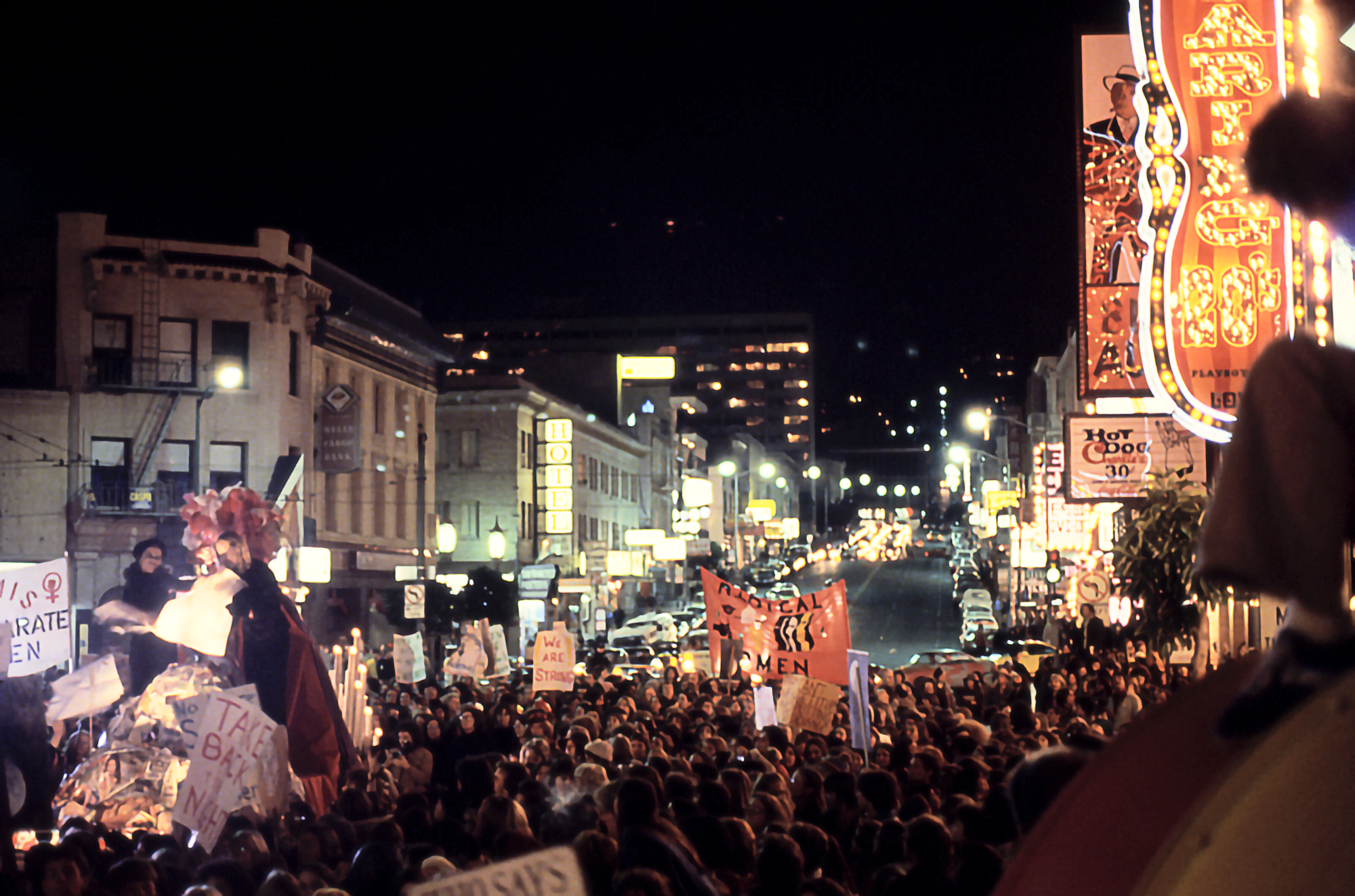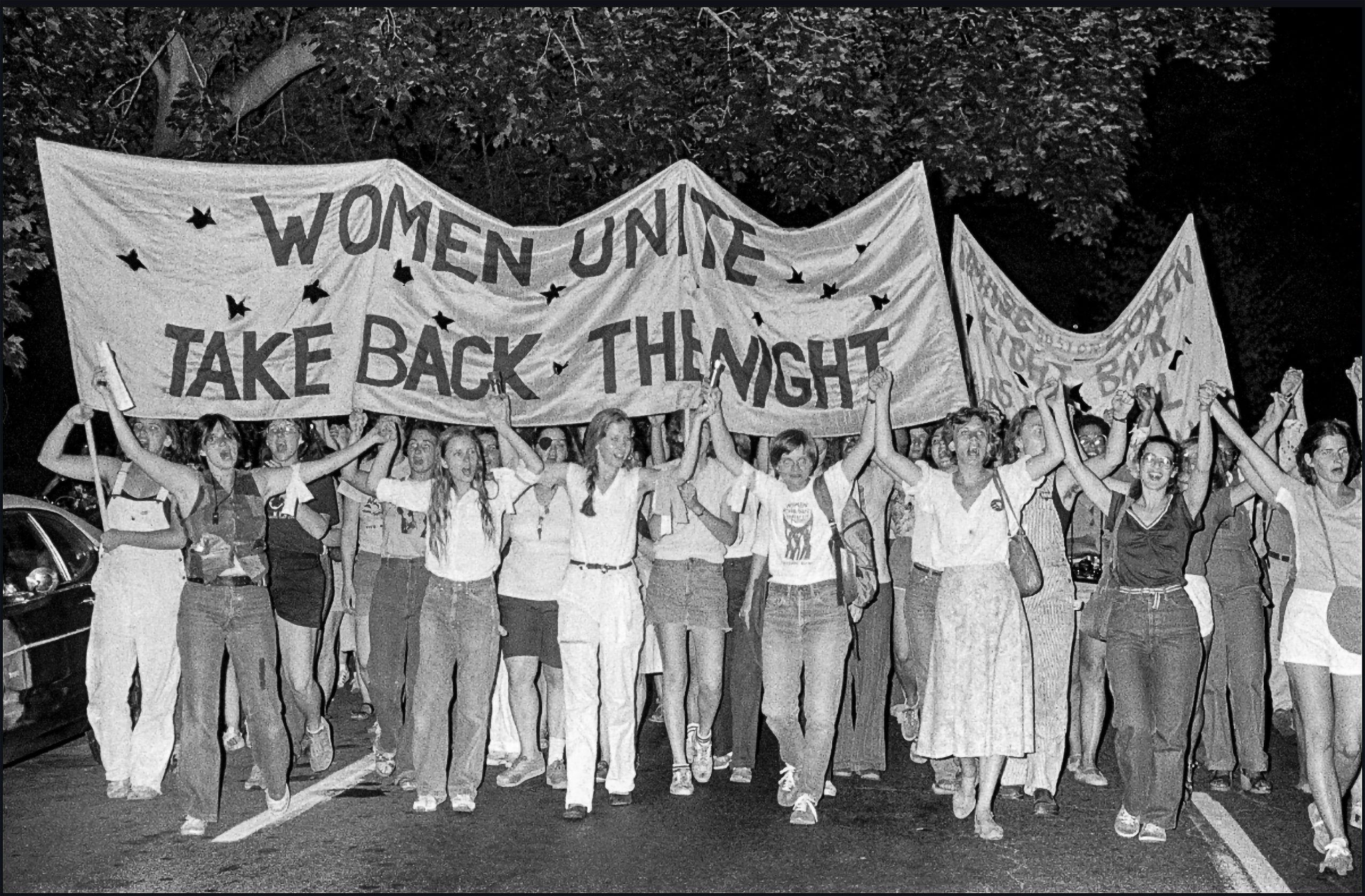International History of TBTN
Events through the Decades
Take a tour of TBTN Events through 60+ years. Witness our collective journey through marches, rallies, protests, speak-outs and initiatives toward ending sexual violence in all forms. Our early events spotlighted violence against women in mostly European and North American countries. Through the decades, our movement has expanded to embrace survivors of all gender identities from all backgrounds across the continents.
2020s
Powering through COVID limitations, TBTN Event holders forge ahead with innovative online rallies and asynchronous marches. Partnerships continue to blossom and grow with artists, graphic designers, musicians, jewelry makers, poets, and small businesses. From India to Nigeria, the Foundation throws aside time zones to develop lasting relationships in many corners of the globe through high-level strategic planning around cultural, religious, and governmental limitations for victims’ rights.
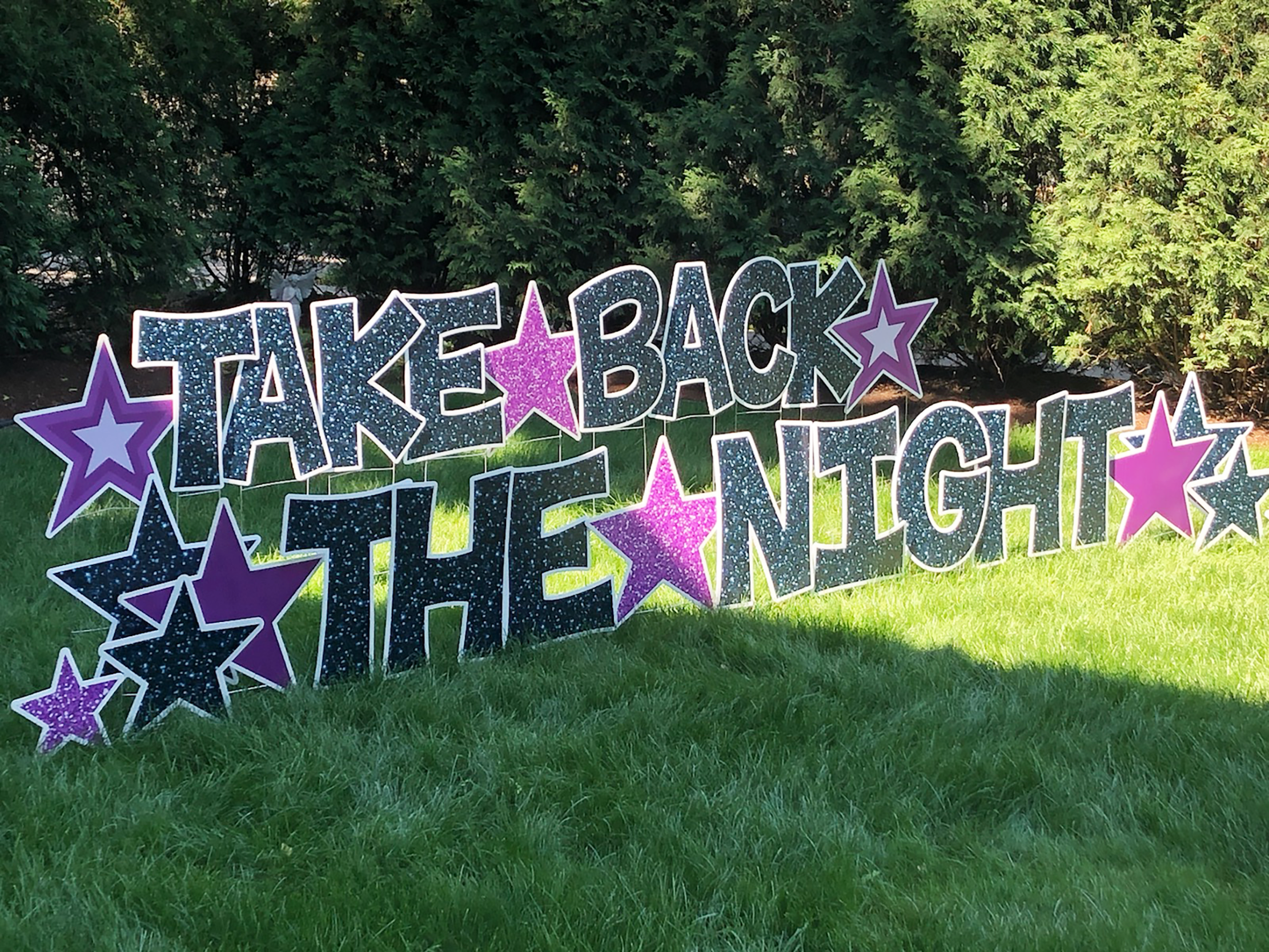
Illinois, 2021
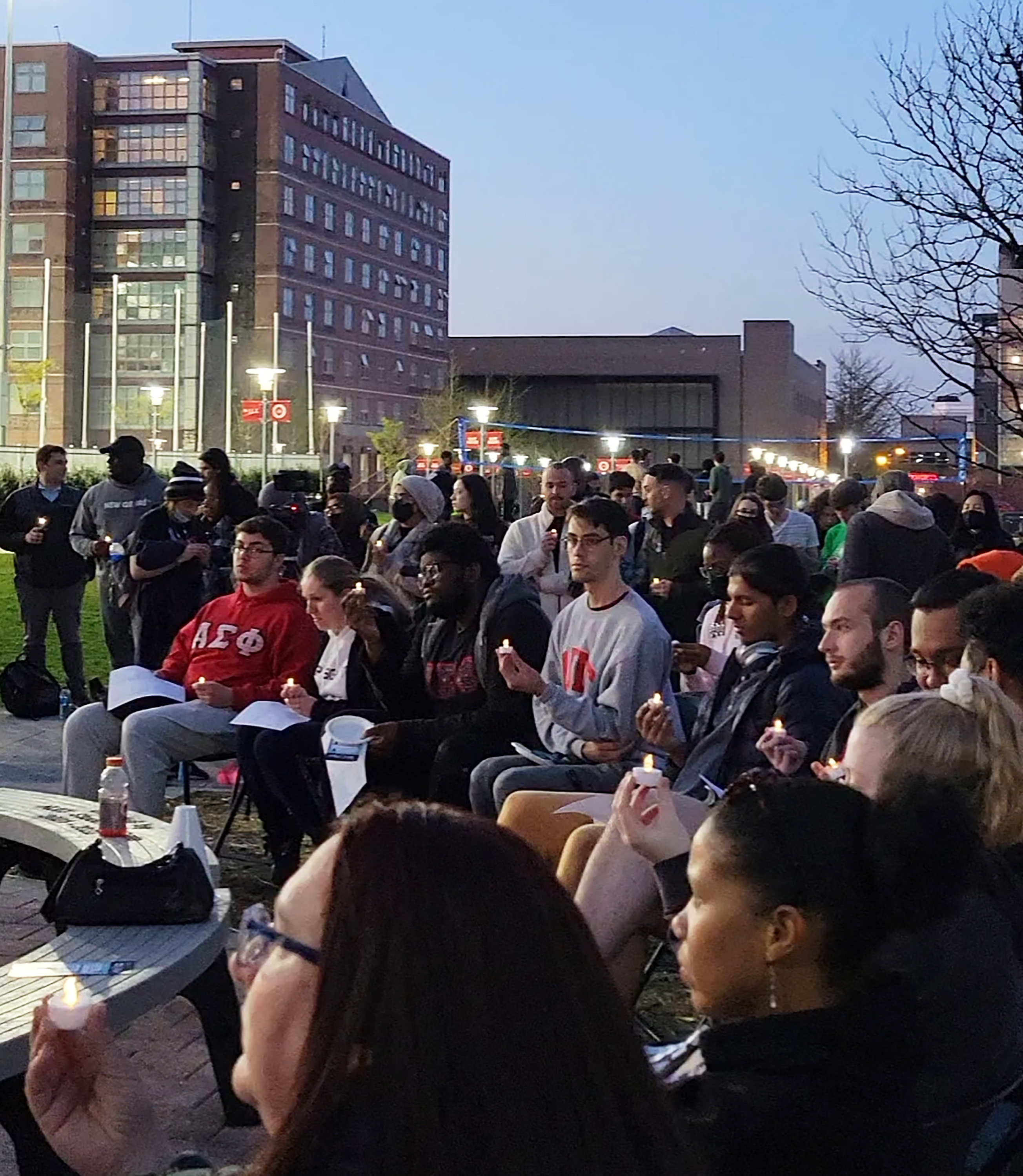
New Jersey Institute for Technology, 2022
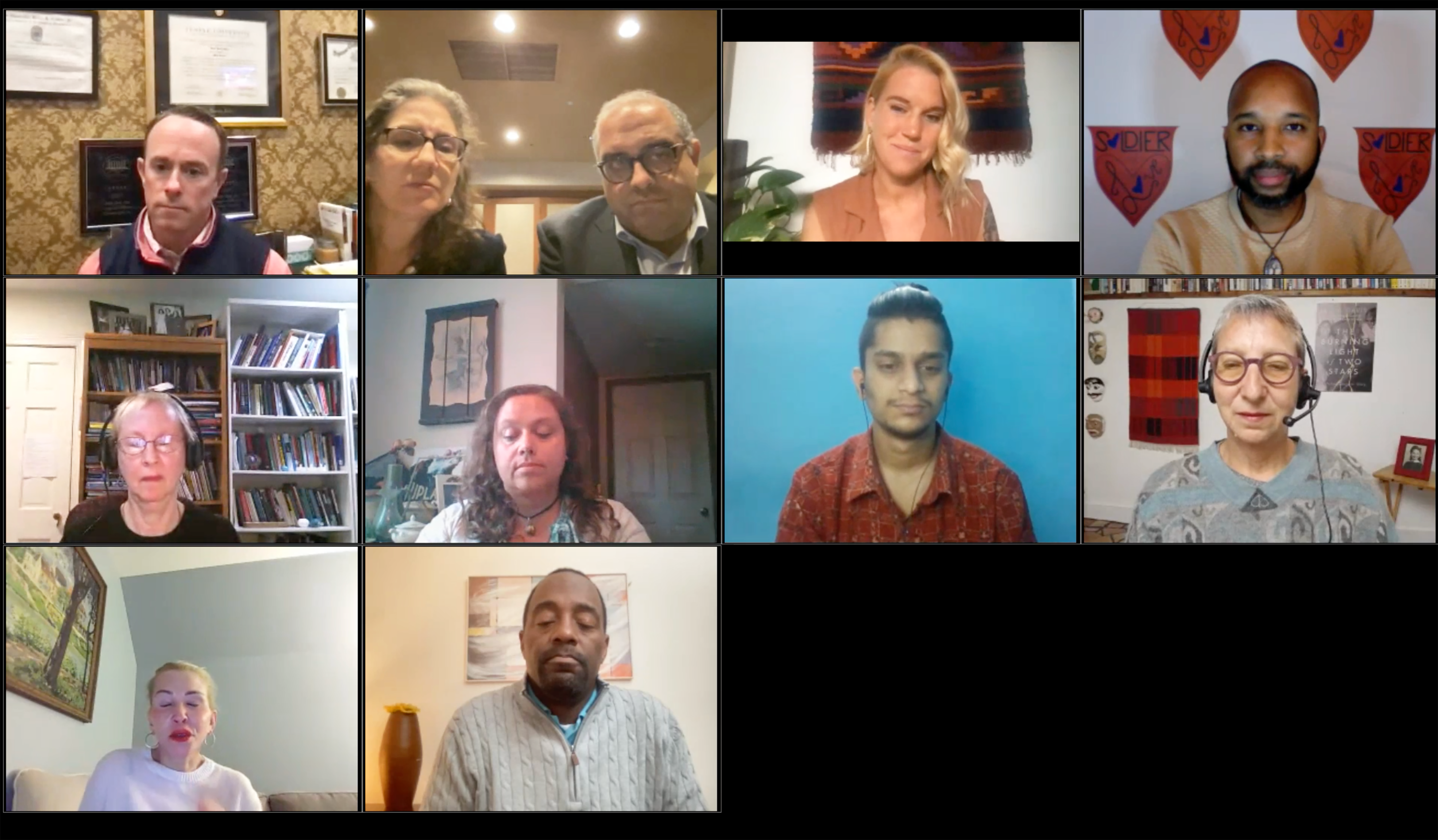
Global Virtual, 2022
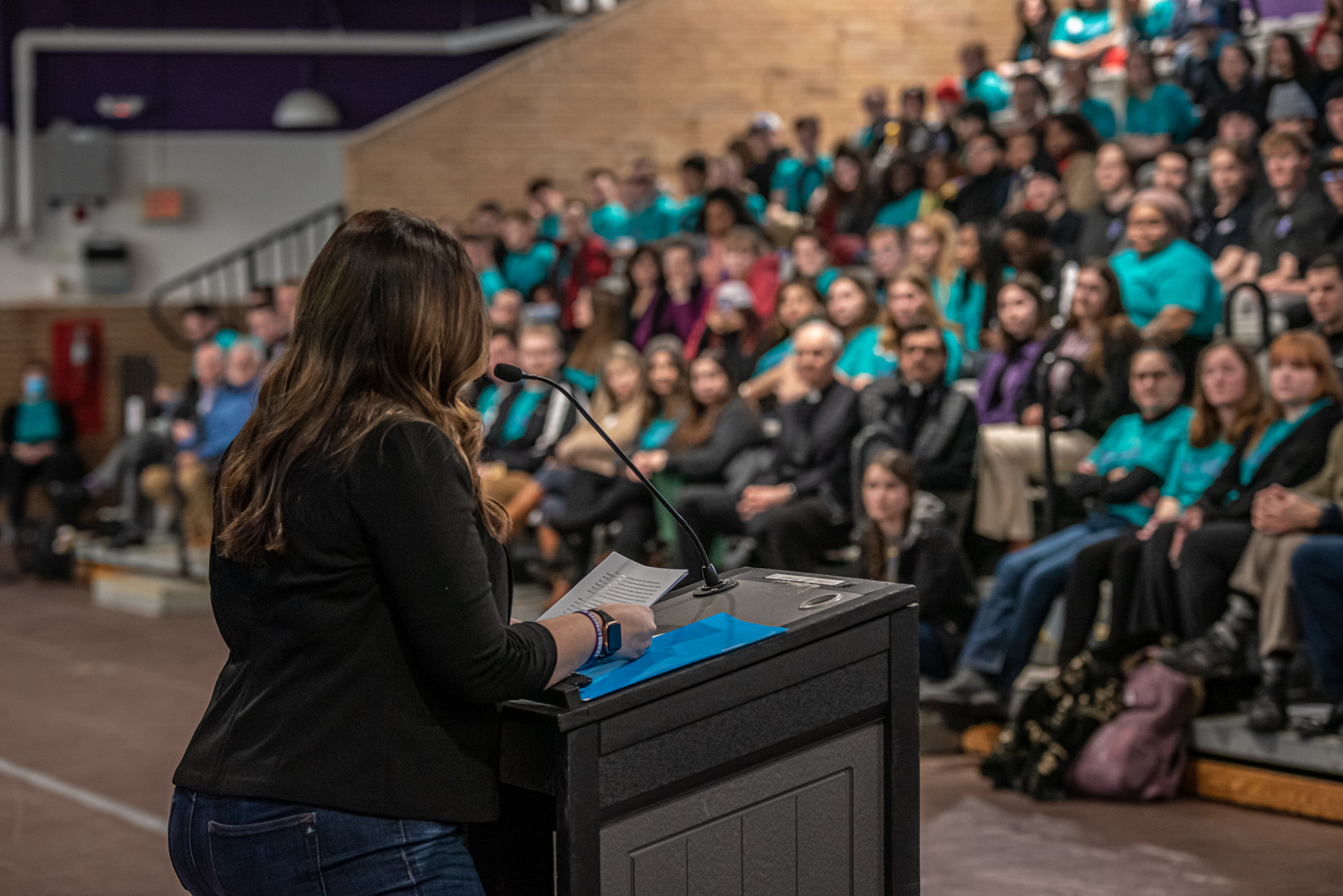
Niagara University, 2023
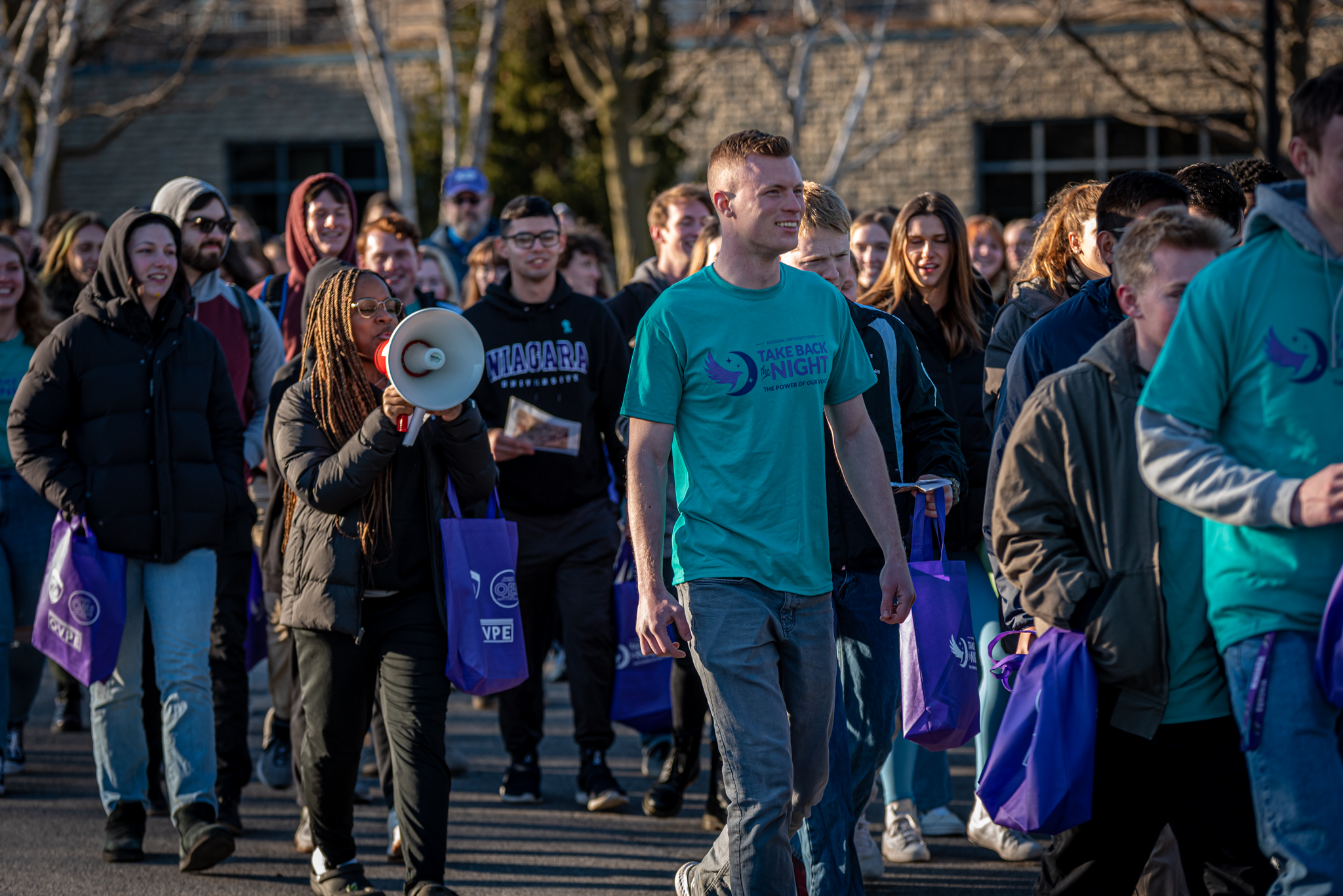
Niagara University, 2023
2010s
From 2-year colleges to underserved communities, Take Back The Night continued to empower more people through our walks, marches, poets, musicians, artists, and activists. Yoga studios came together to support the healing of survivors with Shine Your Light Yoga classes. Free 24/7 legal support for all became possible through our 1-800-SHATTER Hotline. Global Virtual TBTN Events gave space for diverse voices to speak and be heard across international borders.
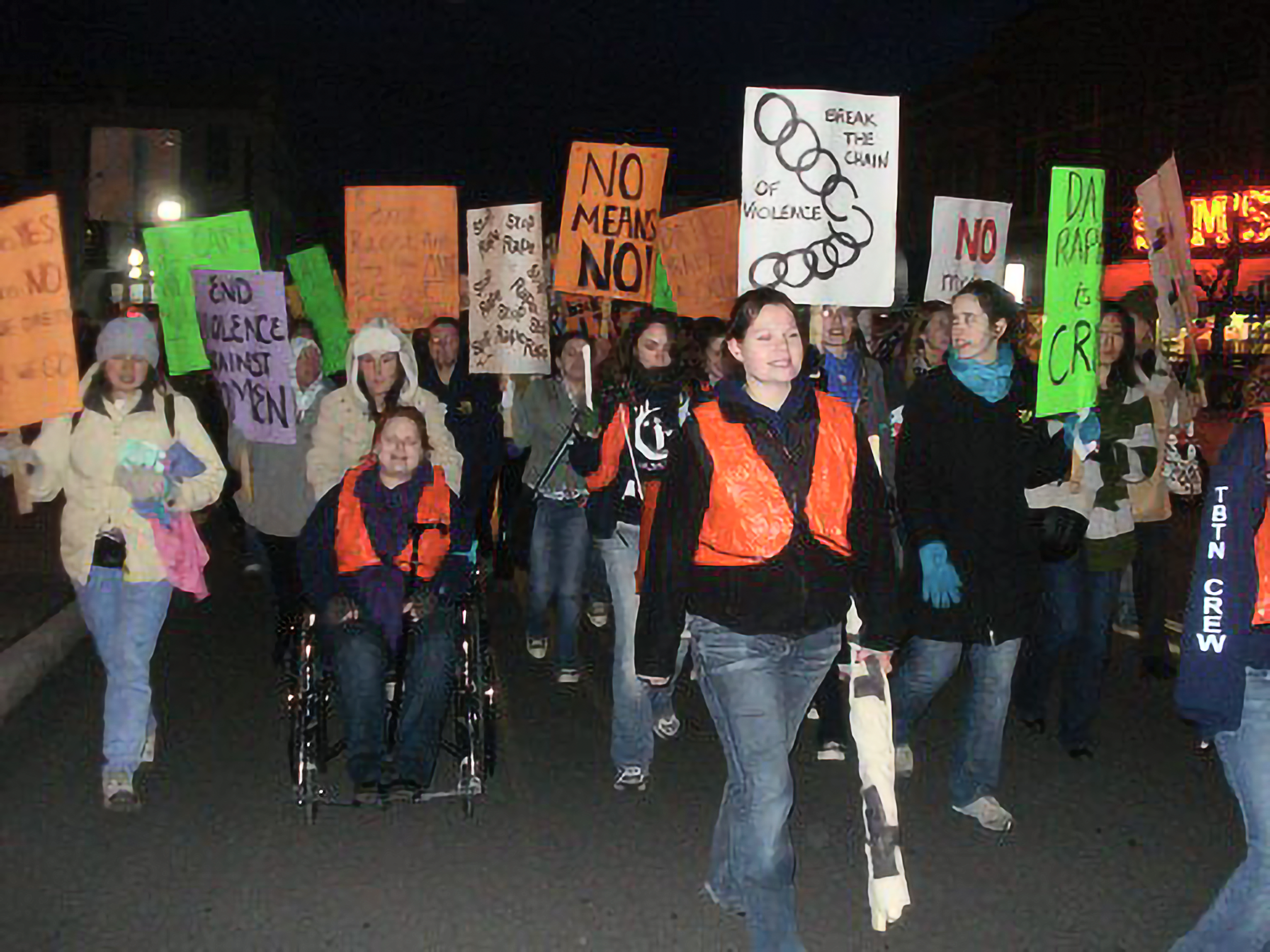
Ann Arbor, MI, 2010
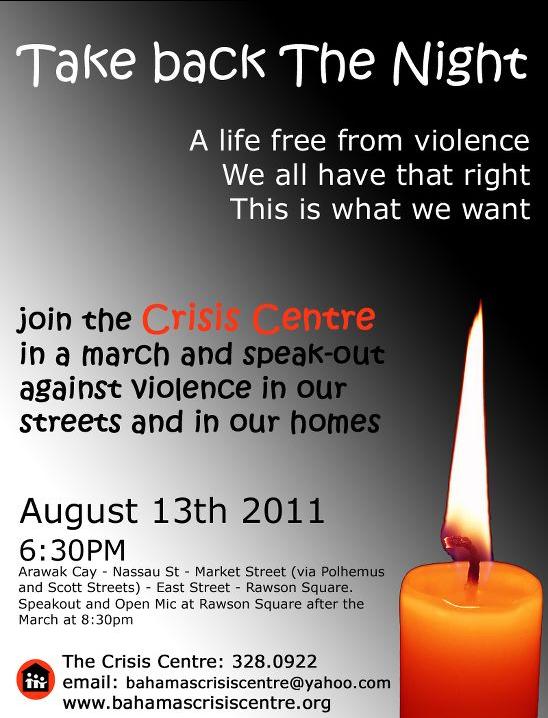
Nassau, Bahamas, 2011
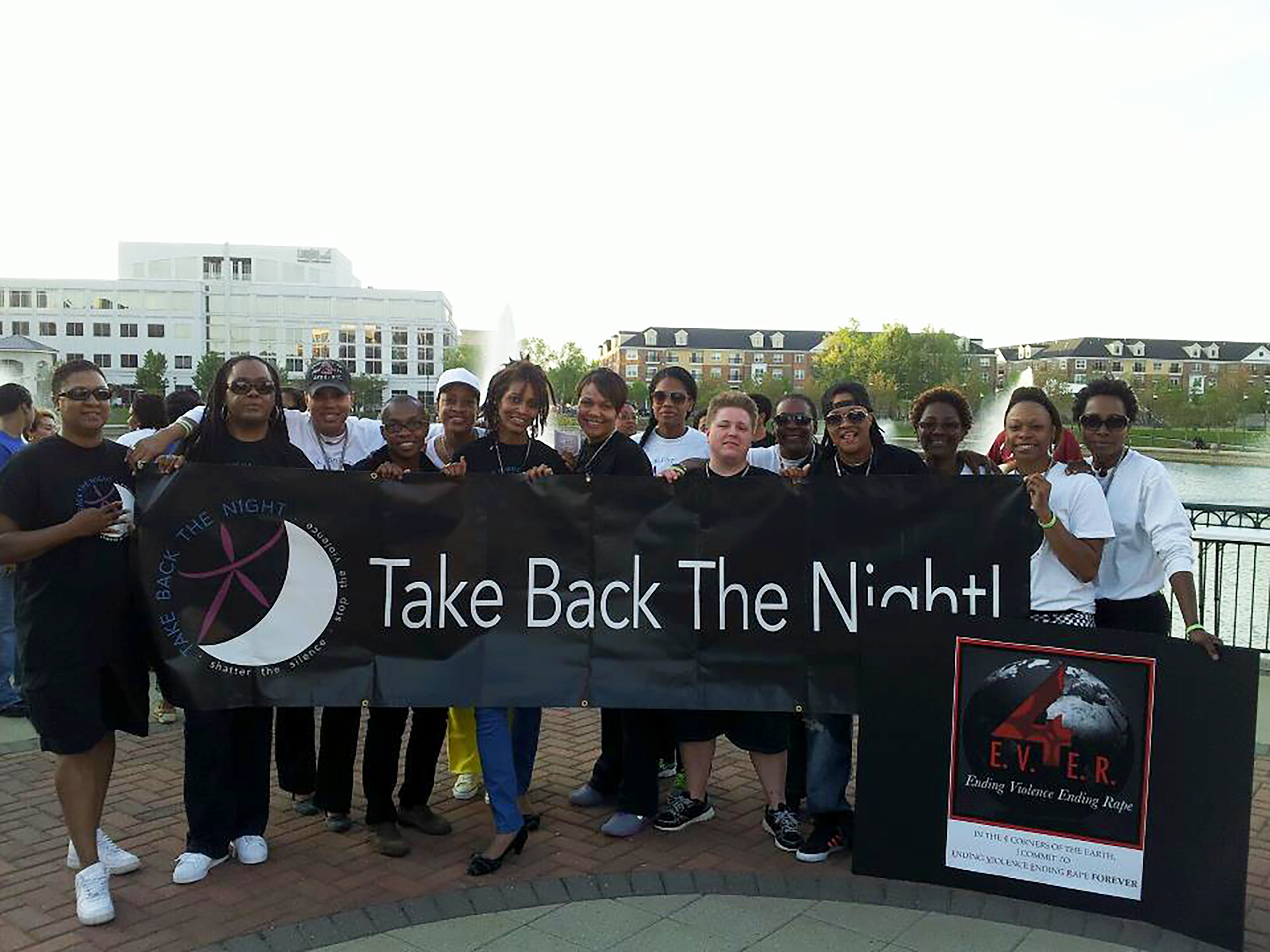
Hampton Roads, VA, 2013
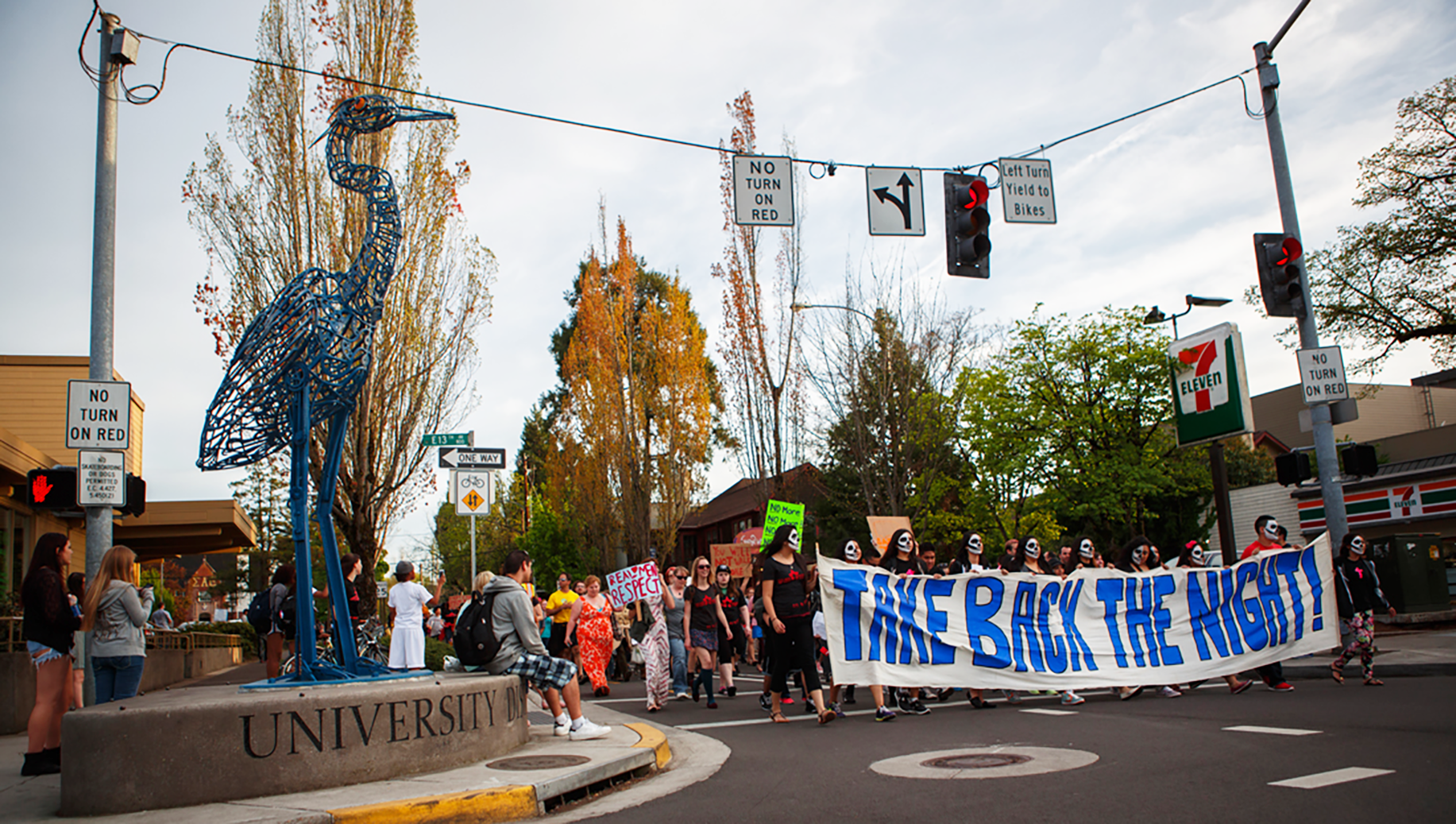
University of Oregon, Eugene, OR, 2013
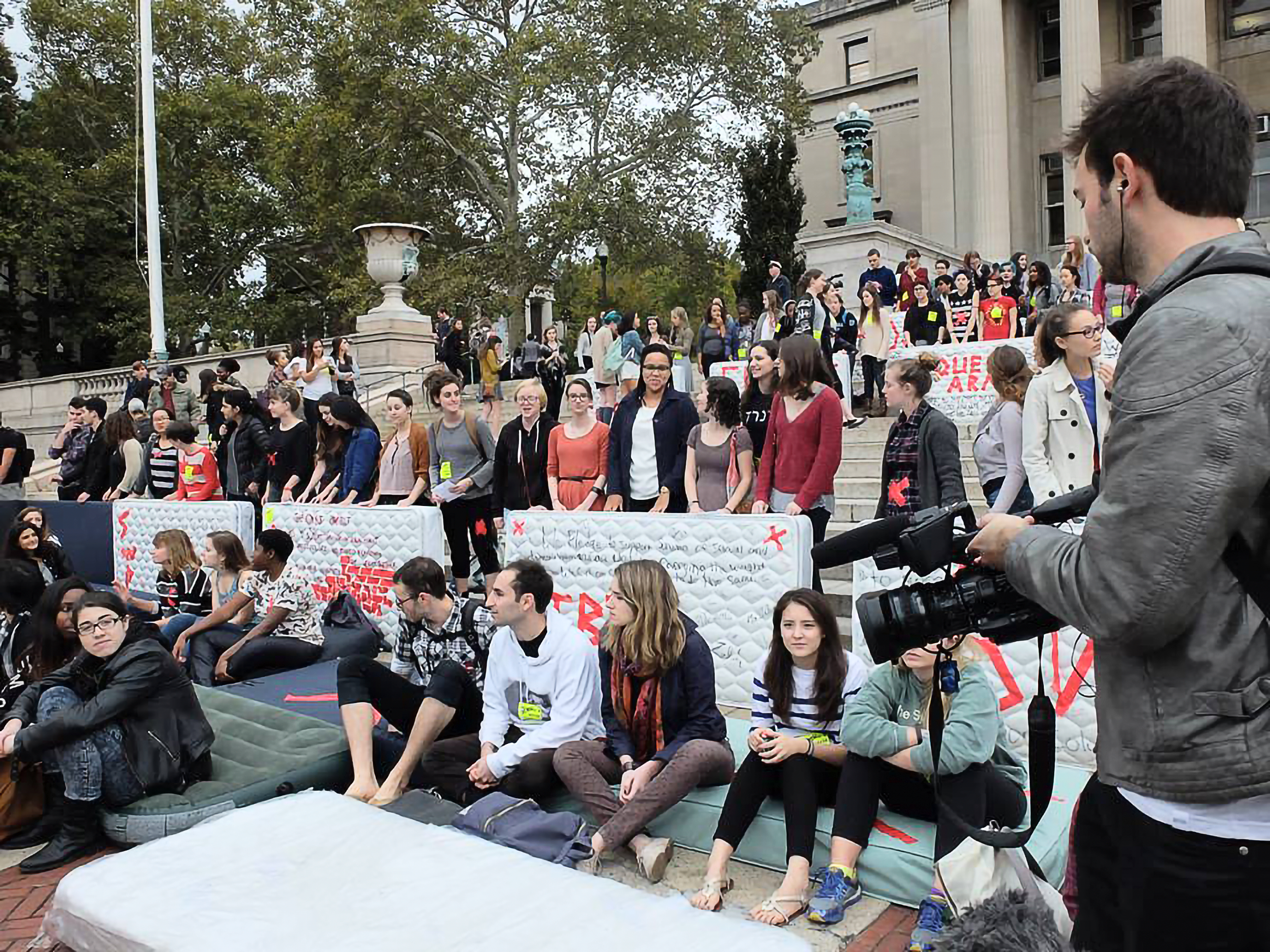
Columbia University, New York City, NY, 2014
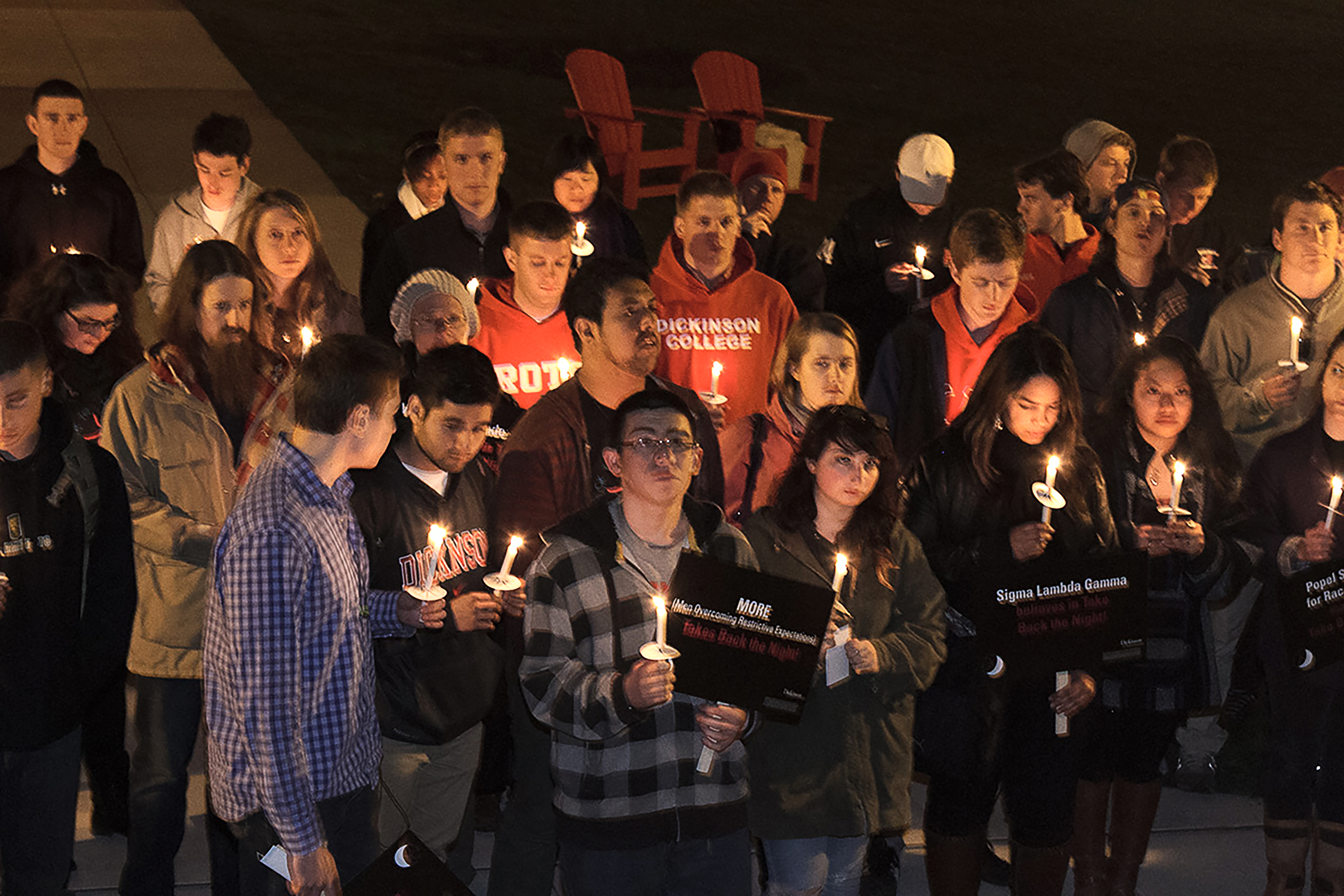
Dickinson College, Carlisle, PA, 2014
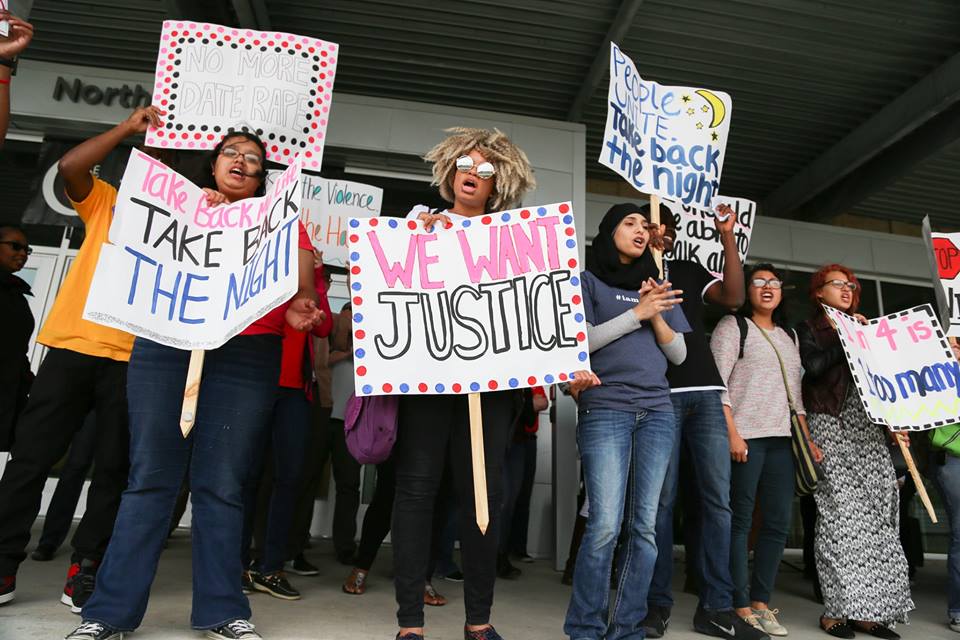
Austin Community College, Austin, TX, 2015
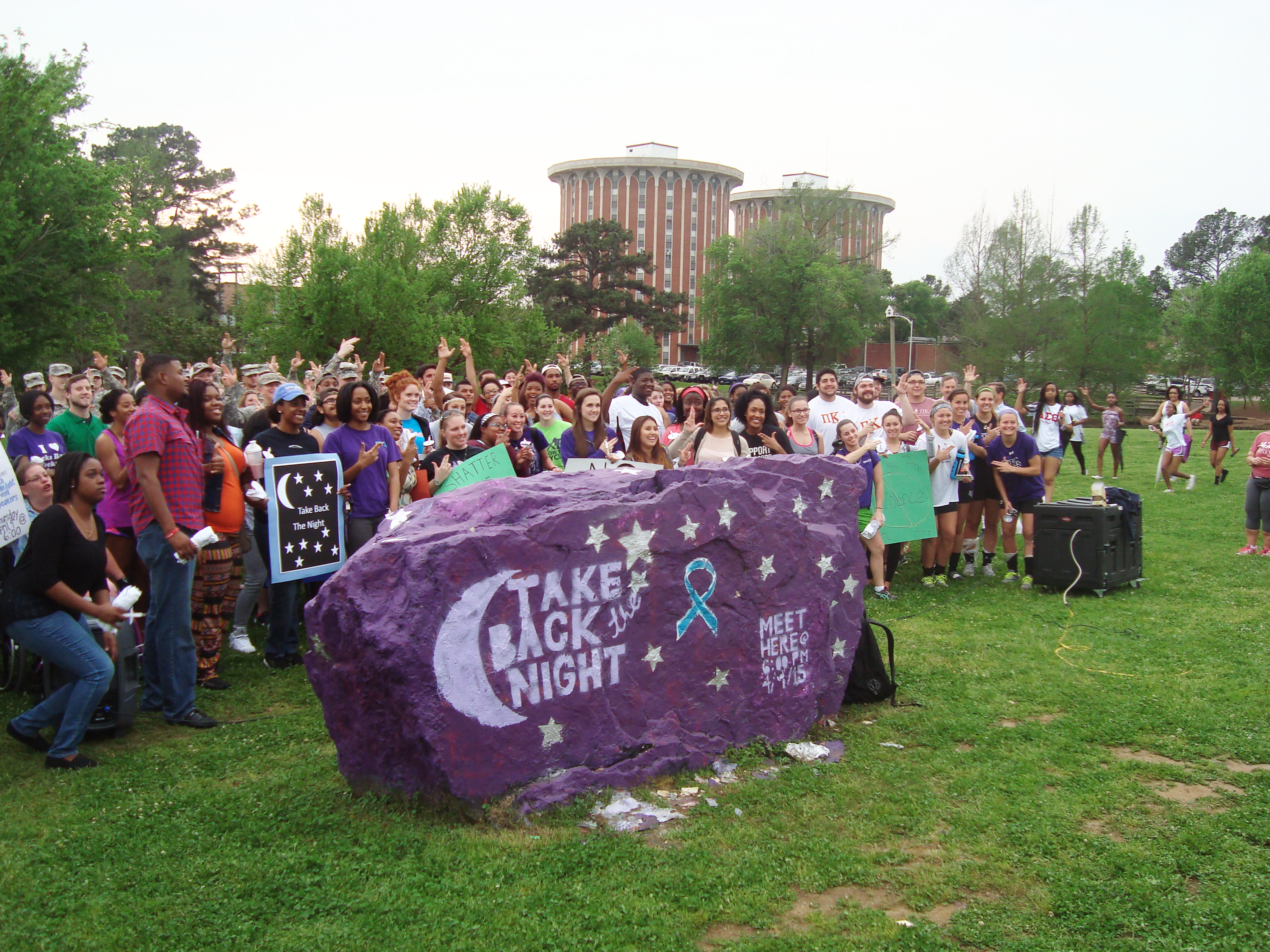
Stephen F. Austin University, Nacogdoches, TX, 2015
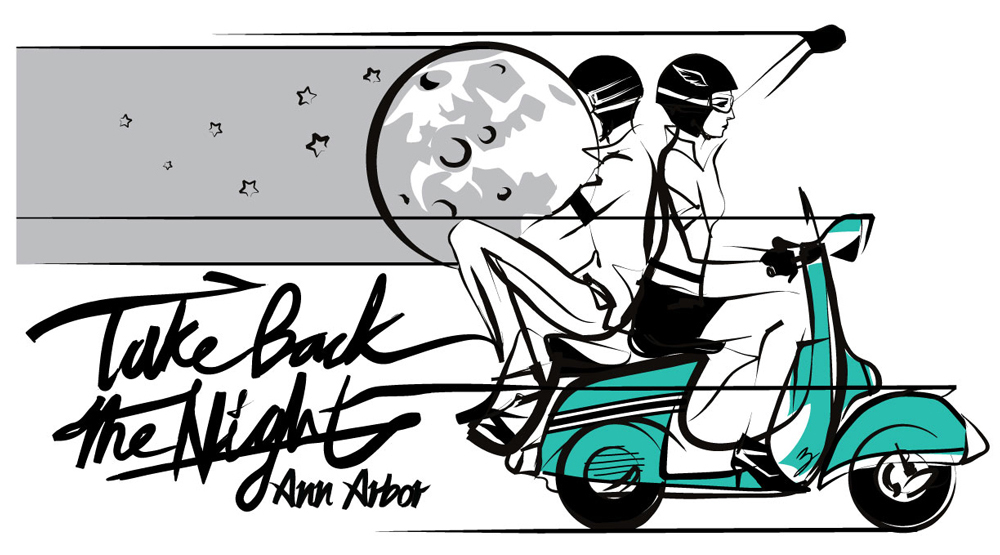
Ann Arbor, MI, 2014
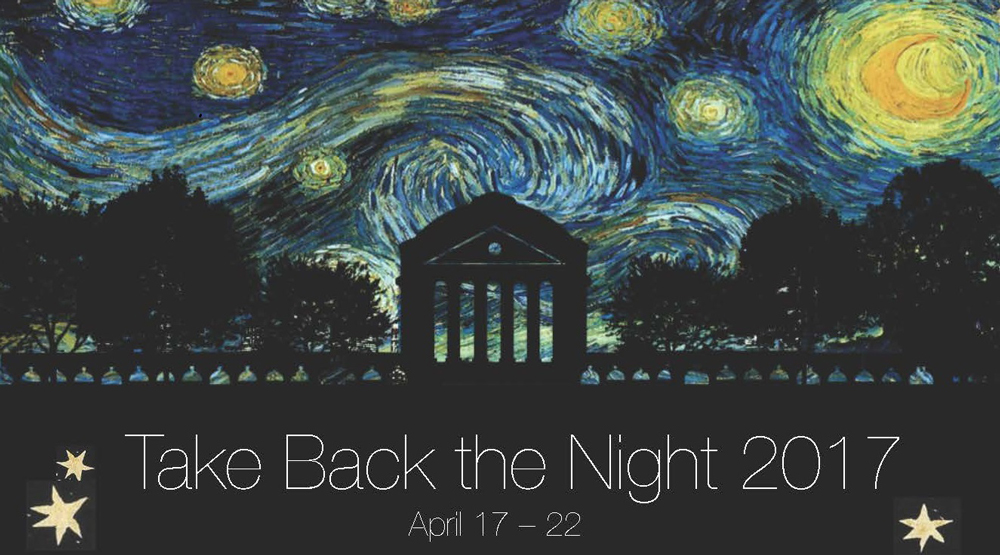
UVA, Charlottesville, VA, 2017
2000s
TBTN Events expanded to smaller towns in more remote communities. In 2001, Take Back The Night as a Foundation came into existence, with leadership from Katie Koestner and committed volunteers, uniting Event holders and participants. Corporations and professional sports teams began holding events to educate their employees and players. Survivors identifying as male and other genders walked, marched, and shared their stories alongside those identifying as female. From its outset, the Foundation firmly supported the diverse voices of all survivors.
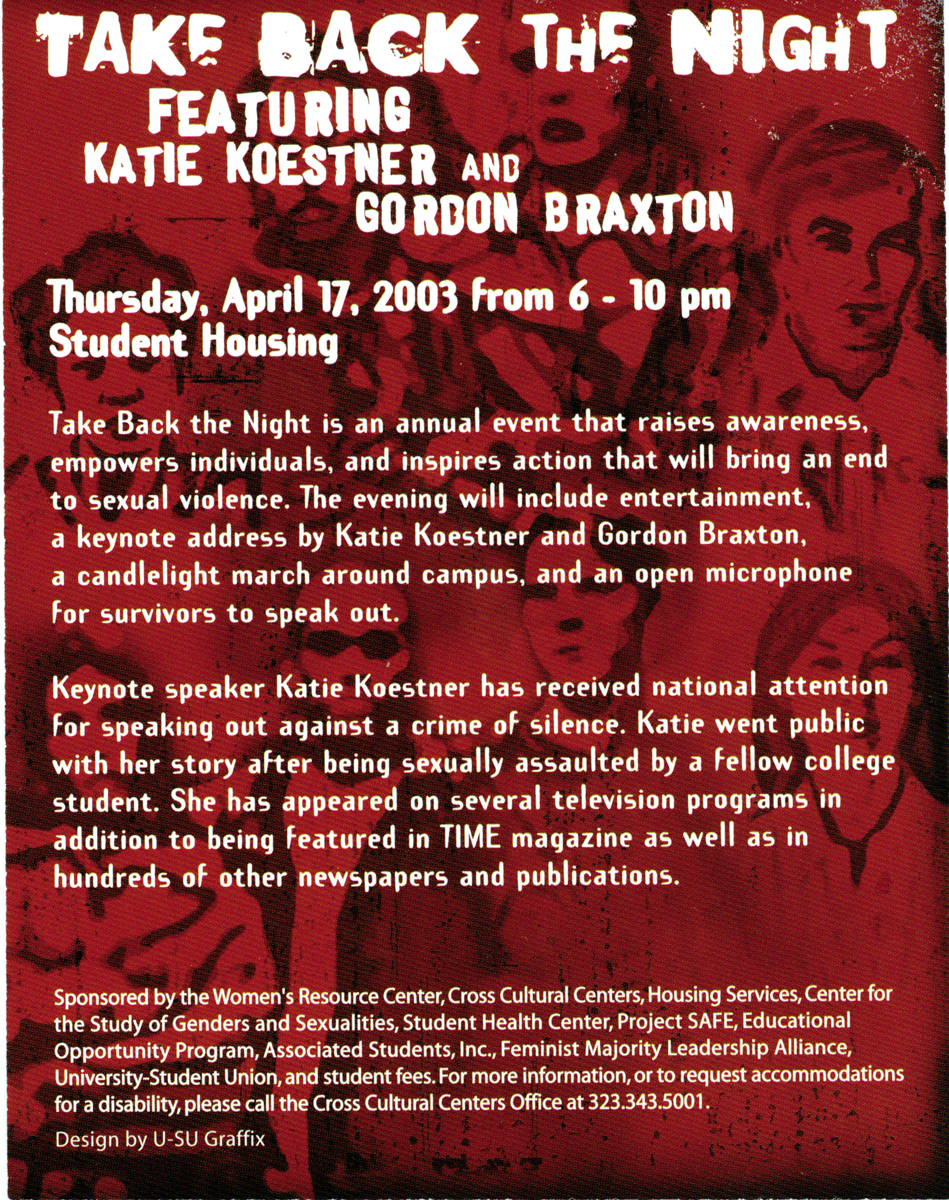
California State University, Los Angeles, CA, 2003
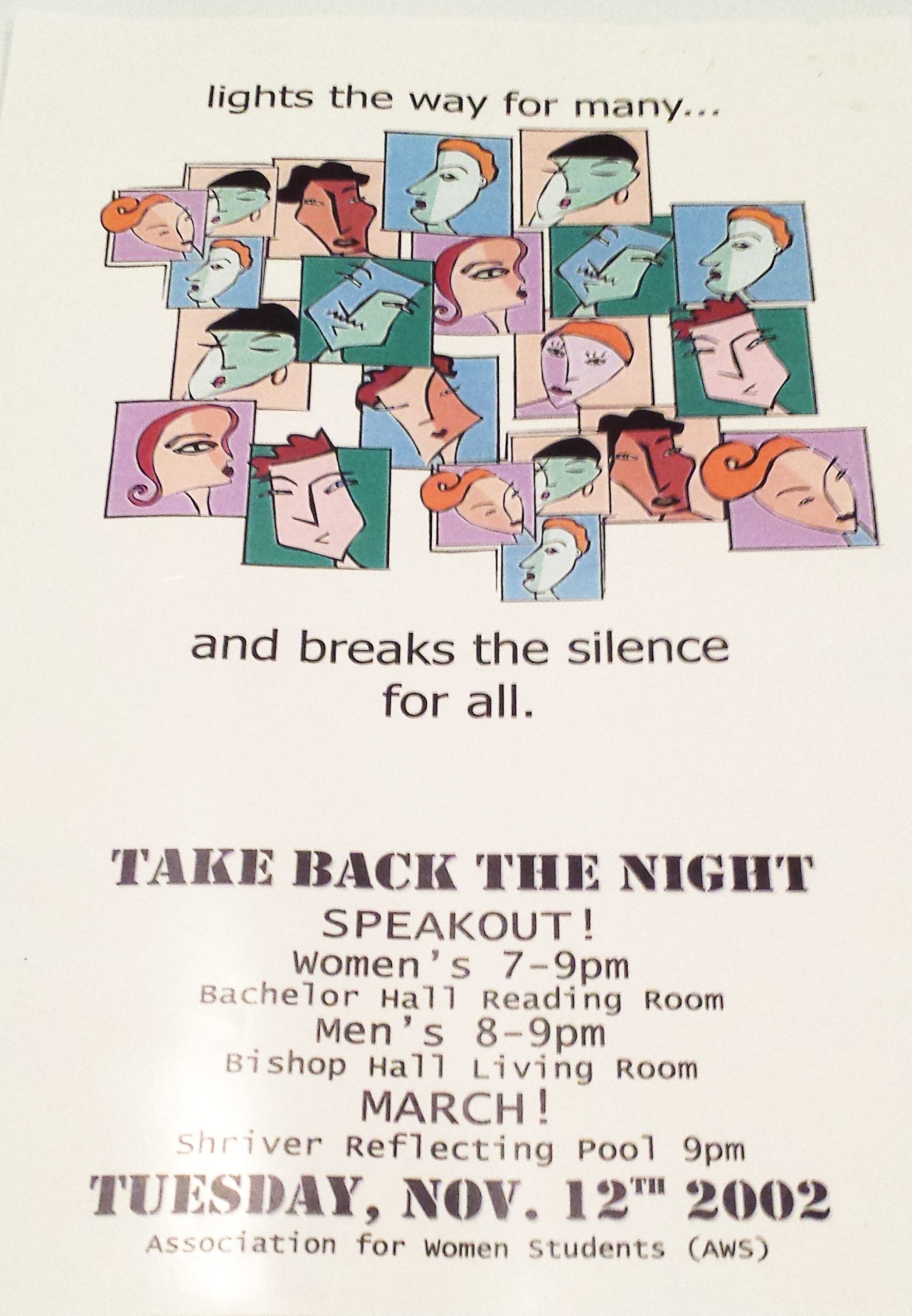
Miami University, Miami, FL, 2002
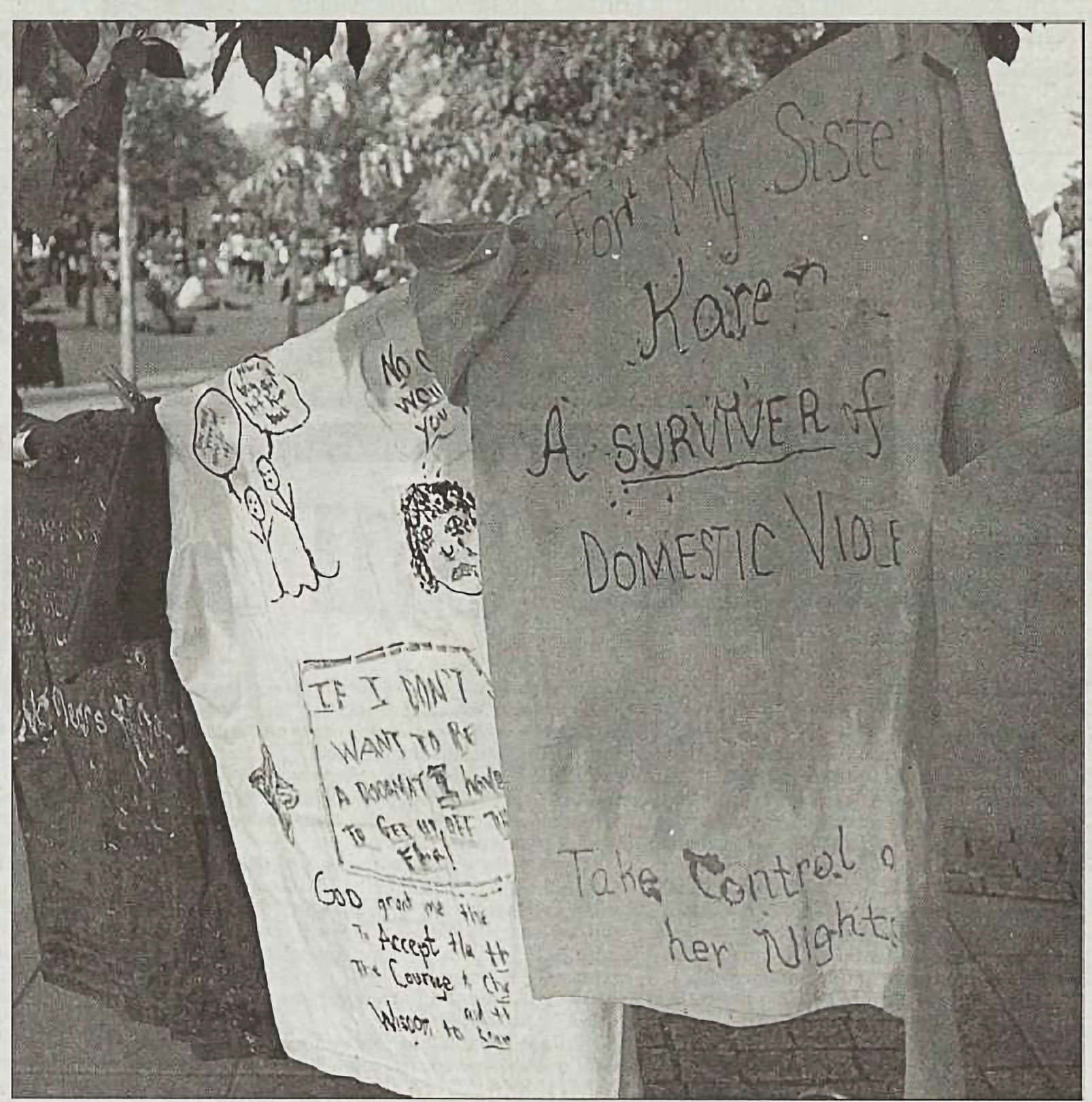
Columbus, OH, 2002; Photo by Melissa Miller
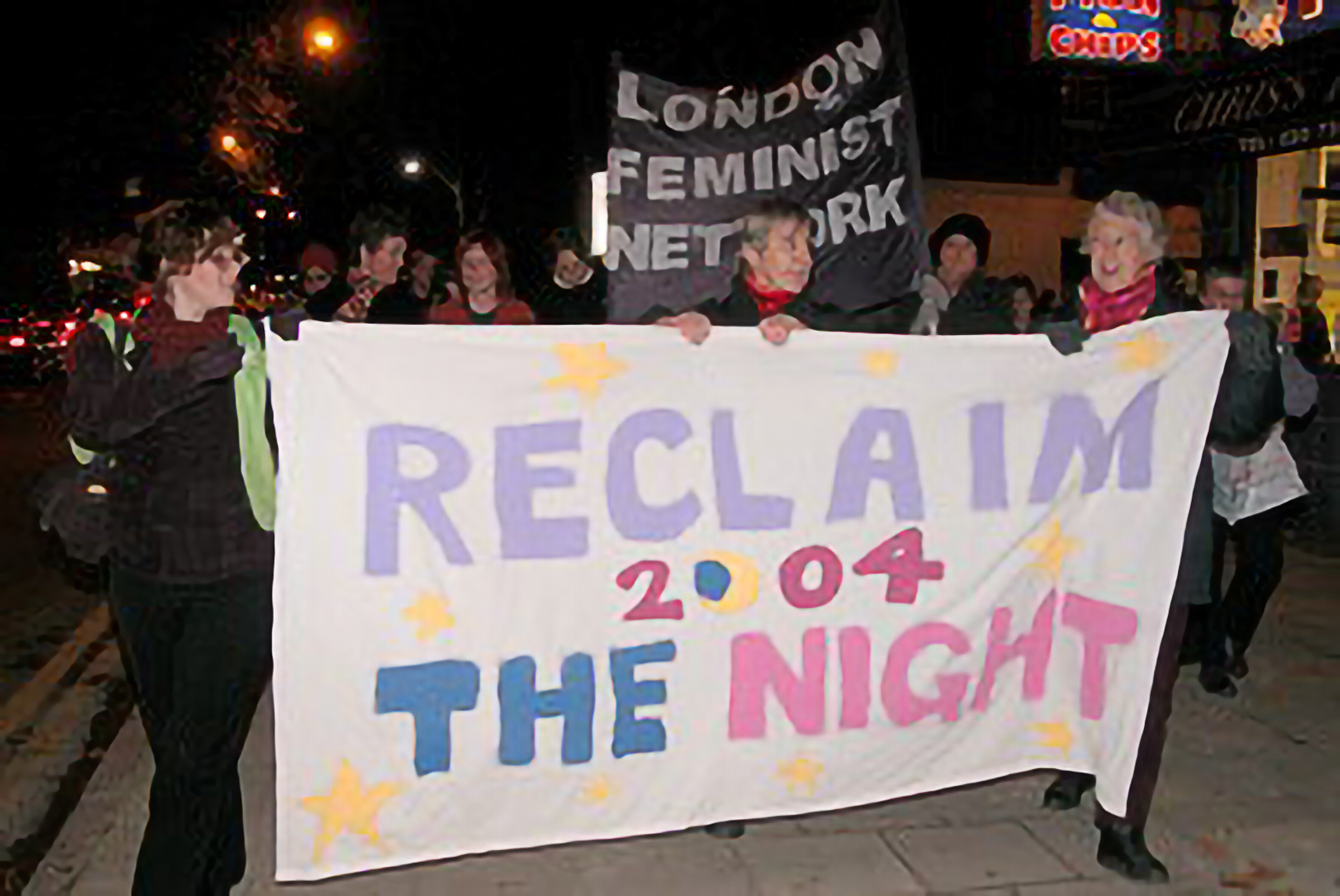
London, England, 2004
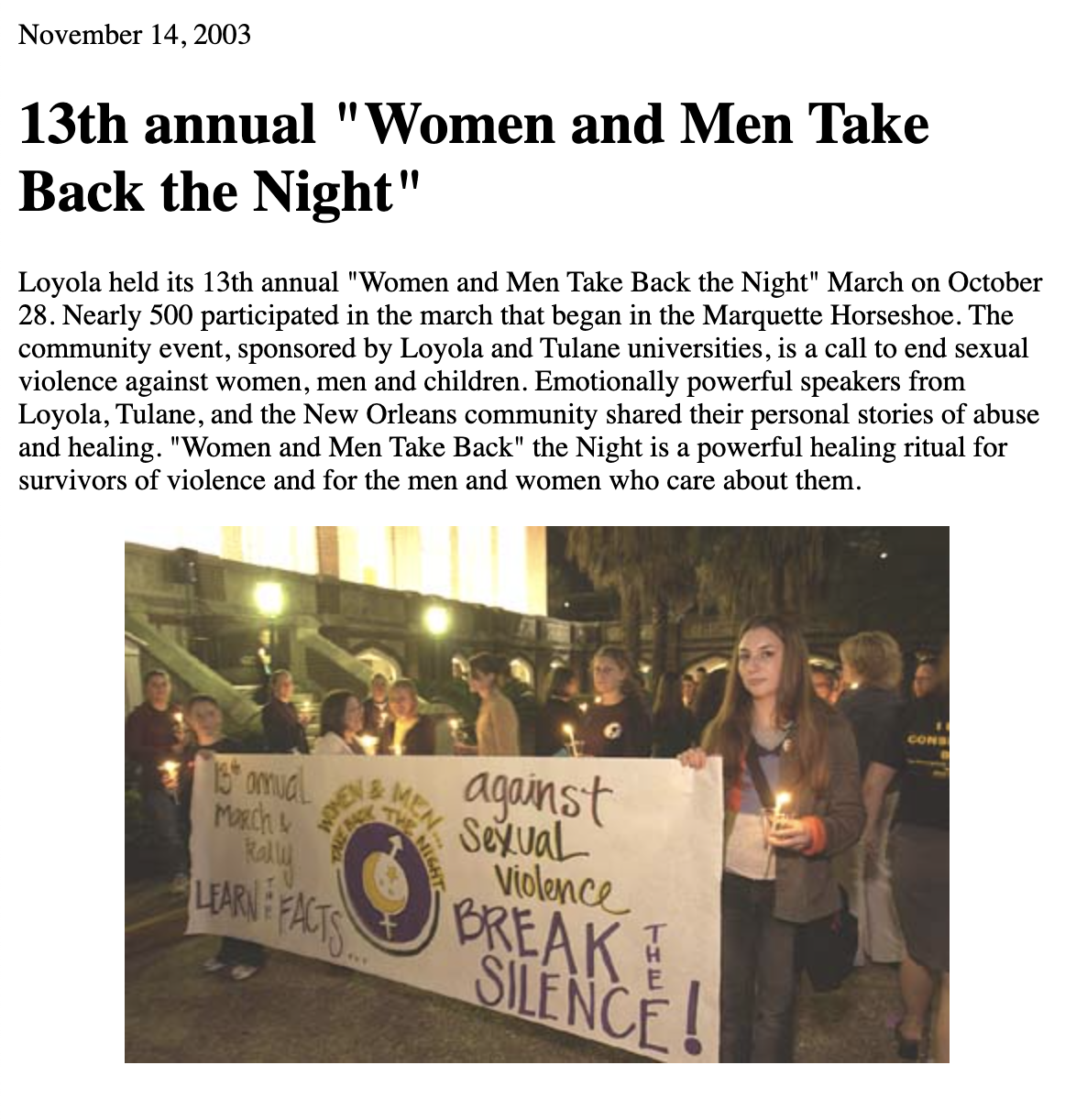
Loyola University, New Orleans, LA, 2003
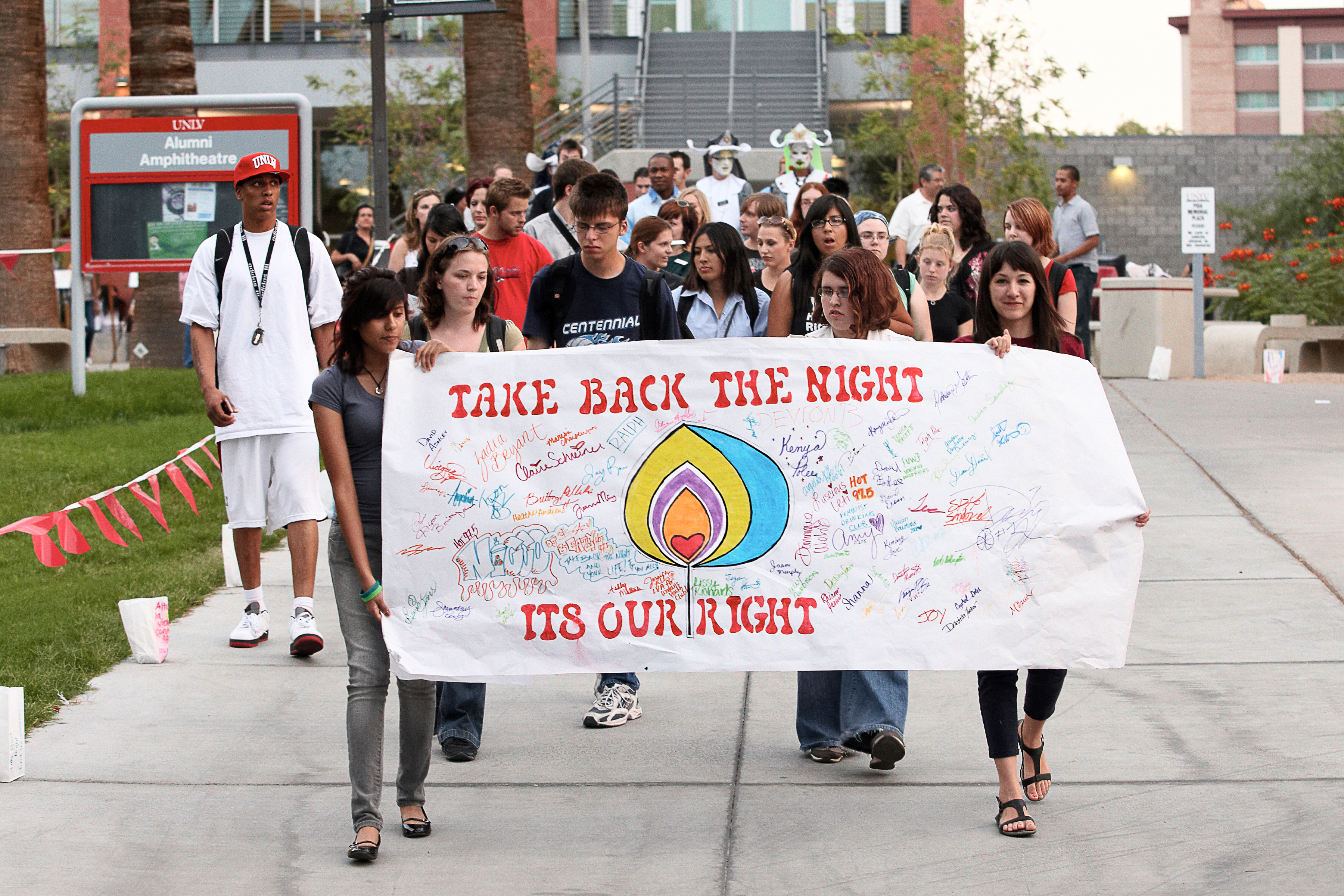
Jean Nidetch Women’s Center, Las Vegas, NV, 2008
1990s
In the 90s, from feisty rallies to respectable walks, thousands of Take Back The Night Event holders decided how to affect change, take a stand within their own communities and culture, and share their stories. Events ranged from girl rock band concerts and clanging pots and pans on marches to candlelight vigils and chapel speak-outs. Activists changed policies, laws, and handbooks, word by word, to ensure victims’ rights and consent-based definitions of sexual violence.
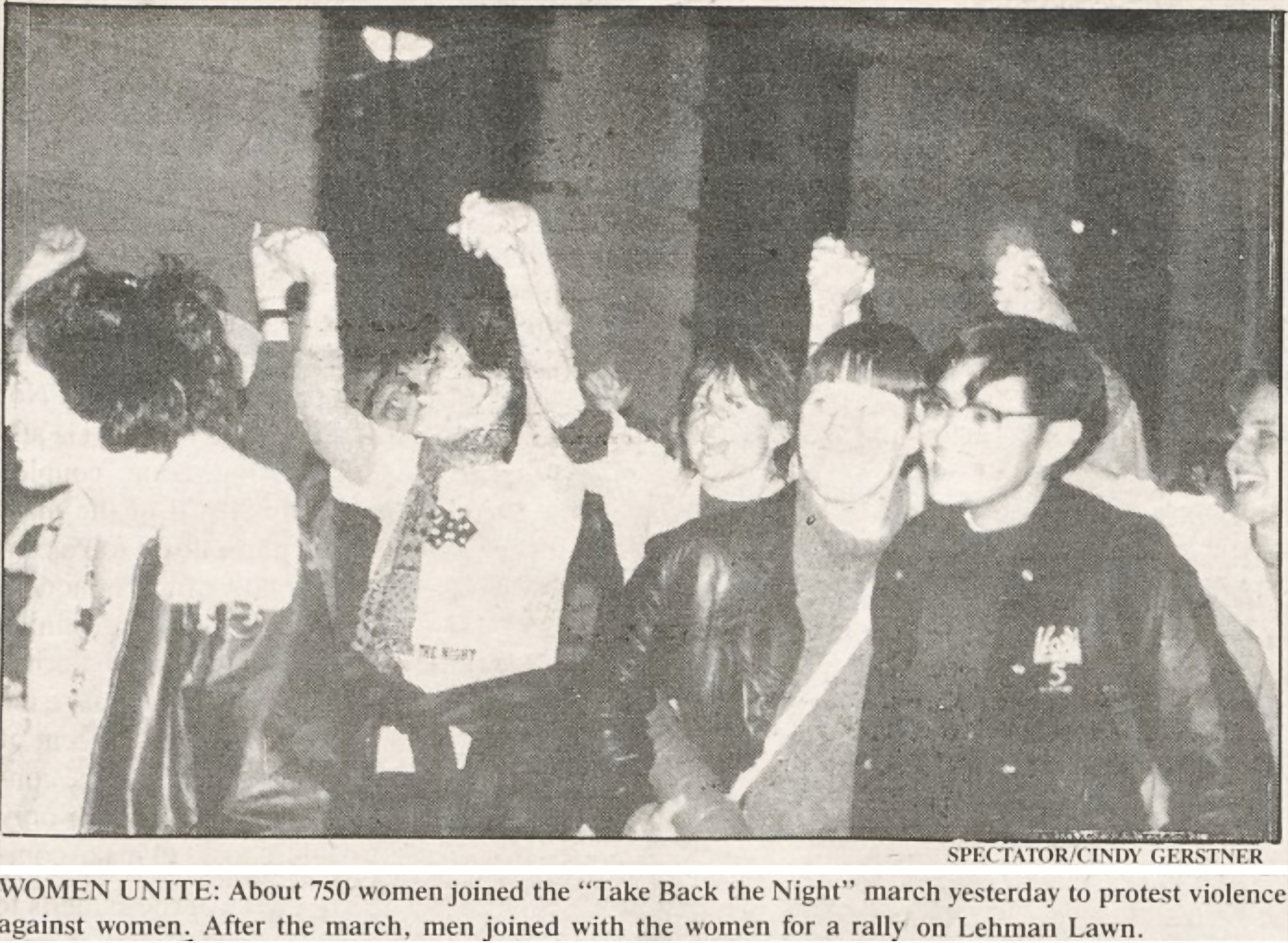
Columbia University, New York City, NY, 1990
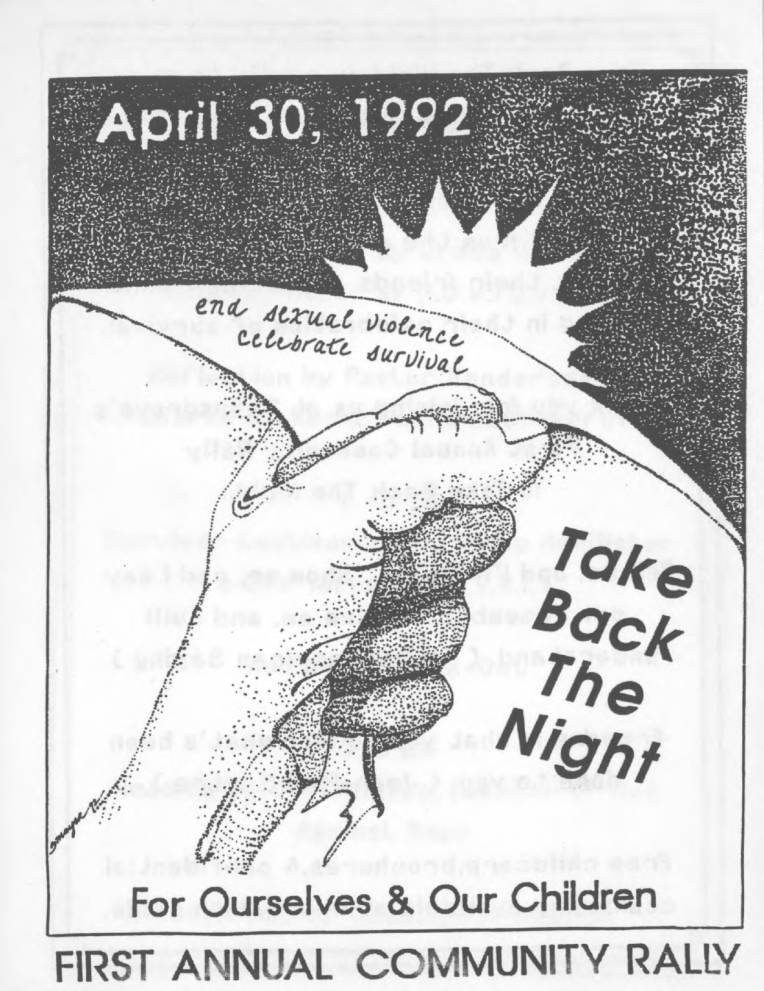
Susquahanna University, Selinsgrove, PA, 1992
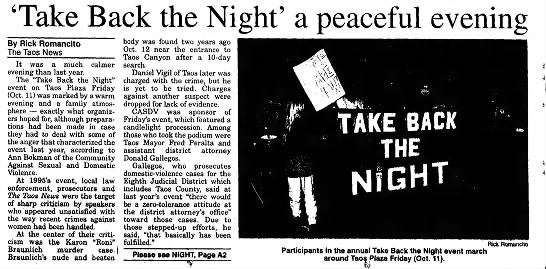
Taos, NM, 1996
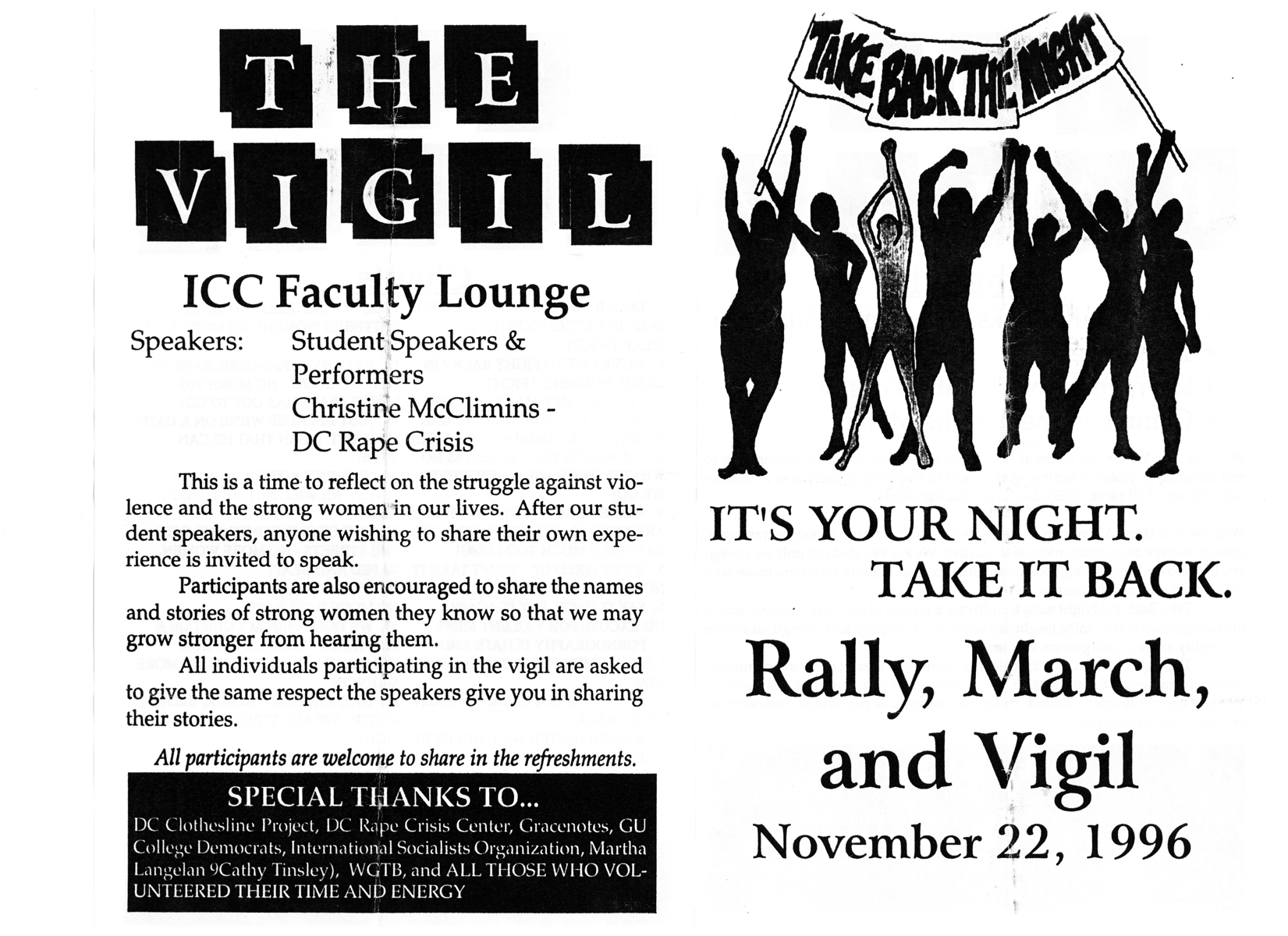
Georgetown University, Washington, D.C., 1996
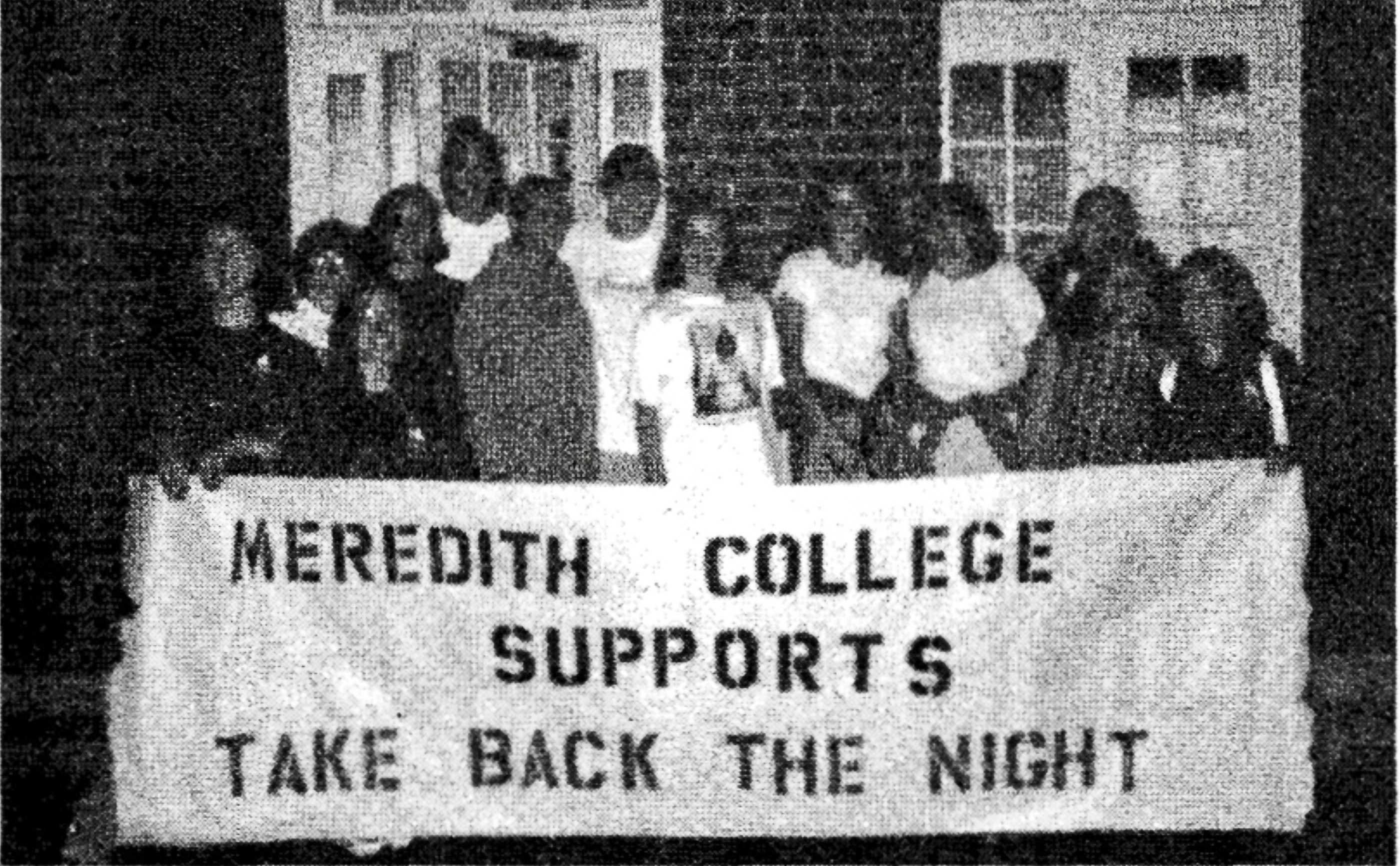
Meredith College, Raleigh, NC, 1994
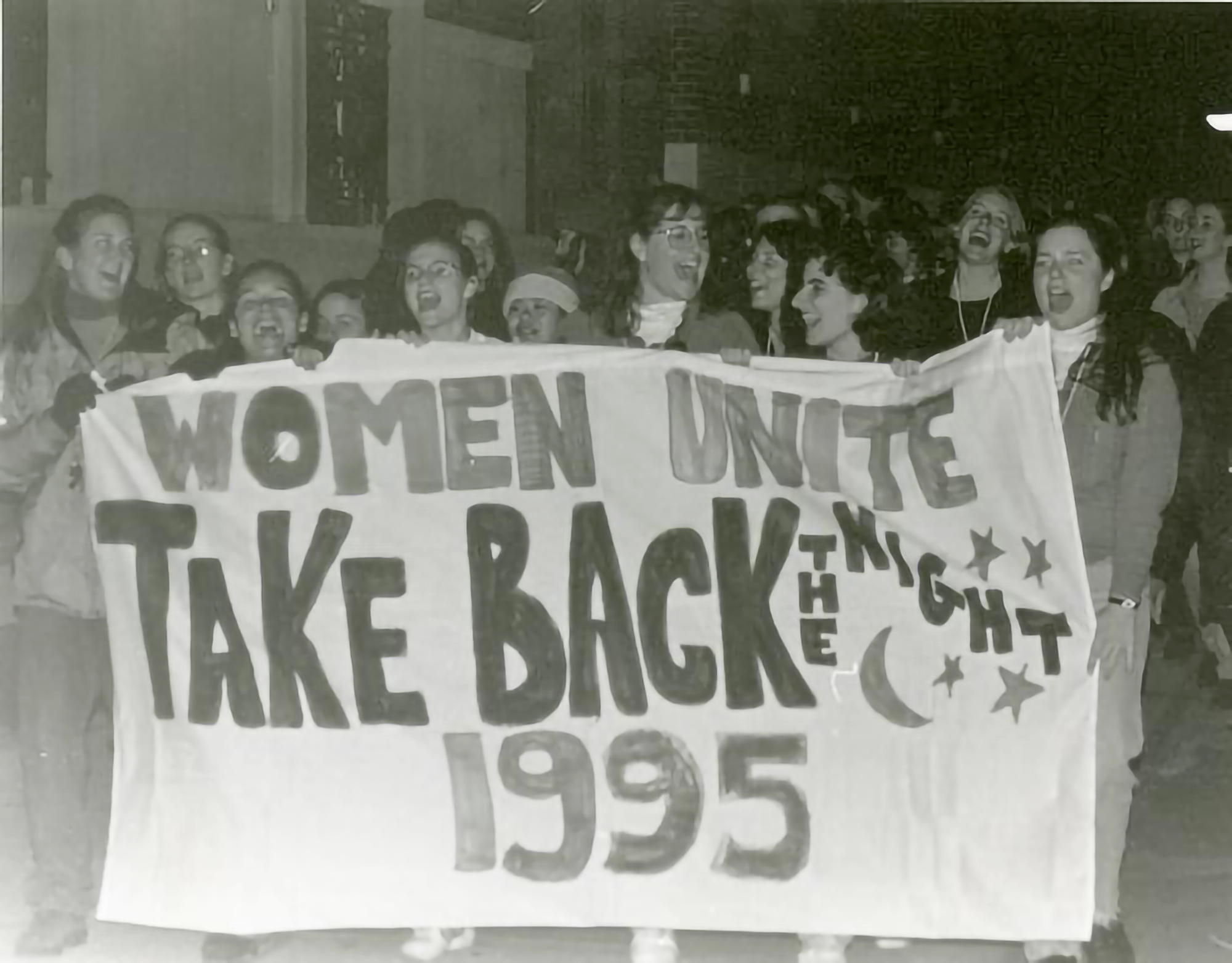
Barnard College, New York City, NY, 1995
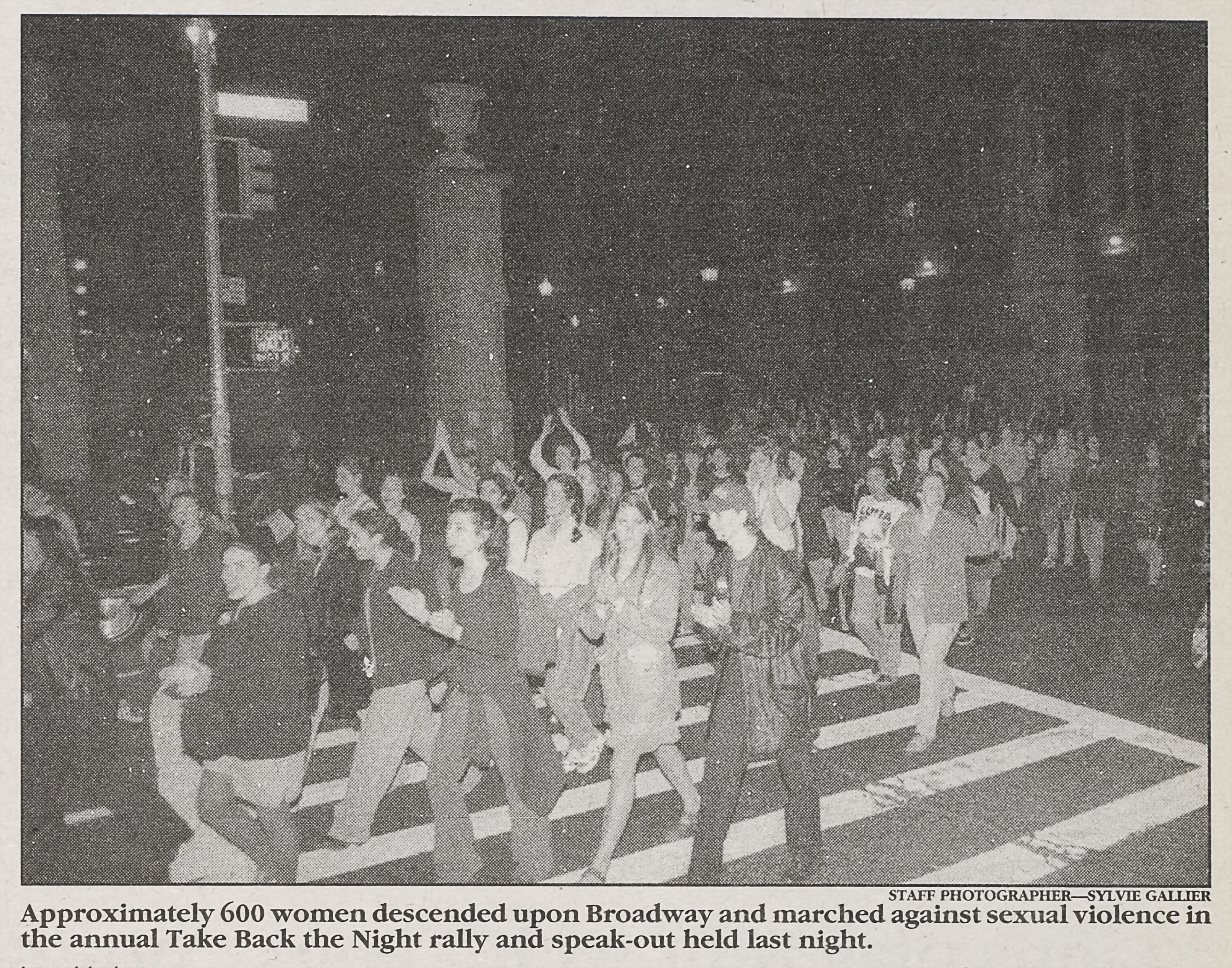
Columbia University, New York City, NY, 1996
1980s
In 1980, Laura Lederer authored and released Take Back The Night: Women On Pornography analyzing the status of gendered violence at the time. Through the 80s, hundreds of colleges and universities in North America began holding marches and rallies on their campuses. The Vancouver Rape Relief held Take Back The Night marches from 1980-1985. In 1981, The Canadian Association of Sexual Assault Centers declared the third Friday of September to be the evening for Take Back The Night marches nationwide. In 1989, the so-called “Antifeminist Mass Murderer from Montreal” killed 14 women and injured 10 more, igniting protests across Canada.
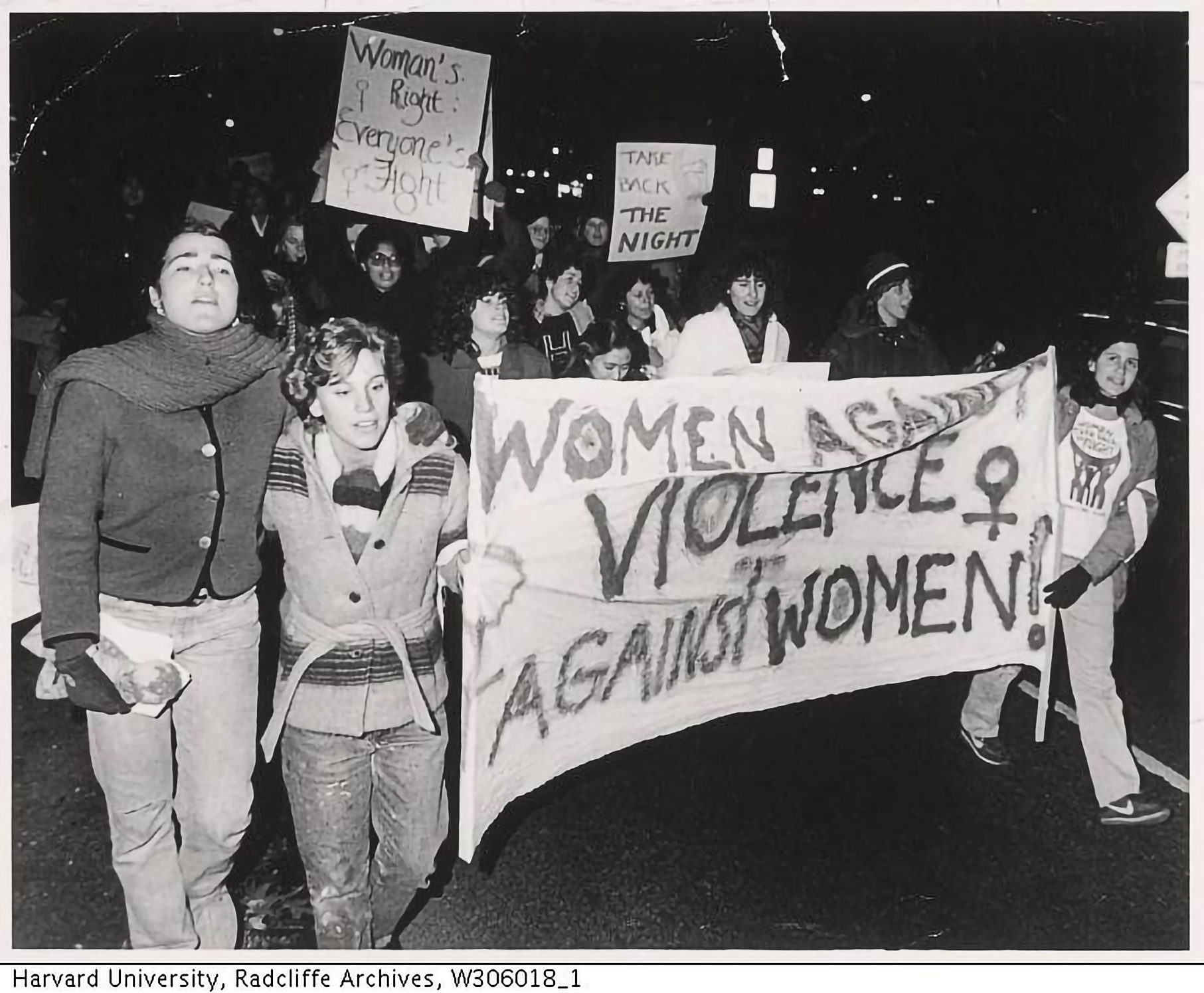
Harvard University, Radcliffe, Cambridge, MA, 1980
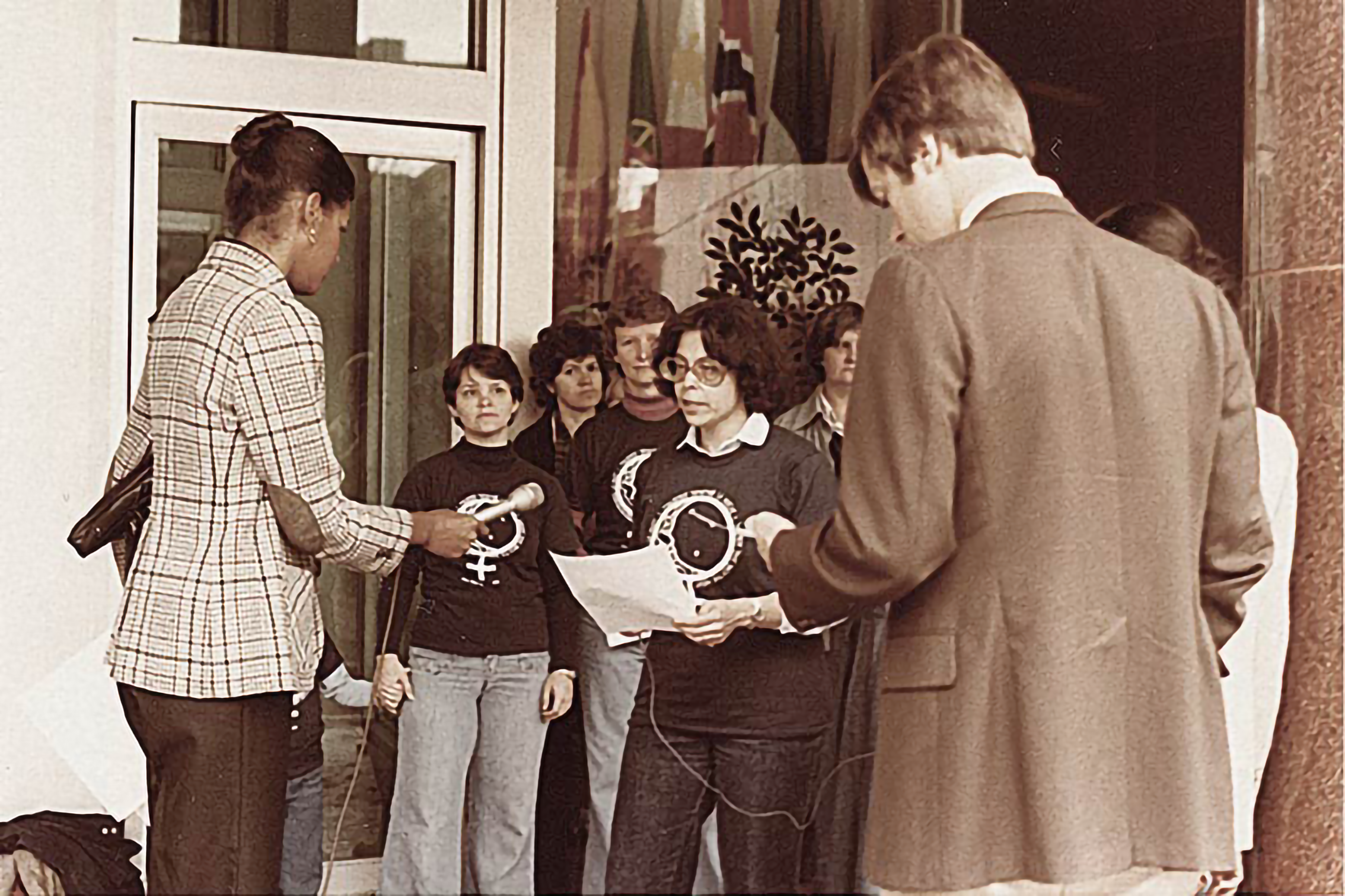
Sandra Karp, New Orleans, LA, 1980
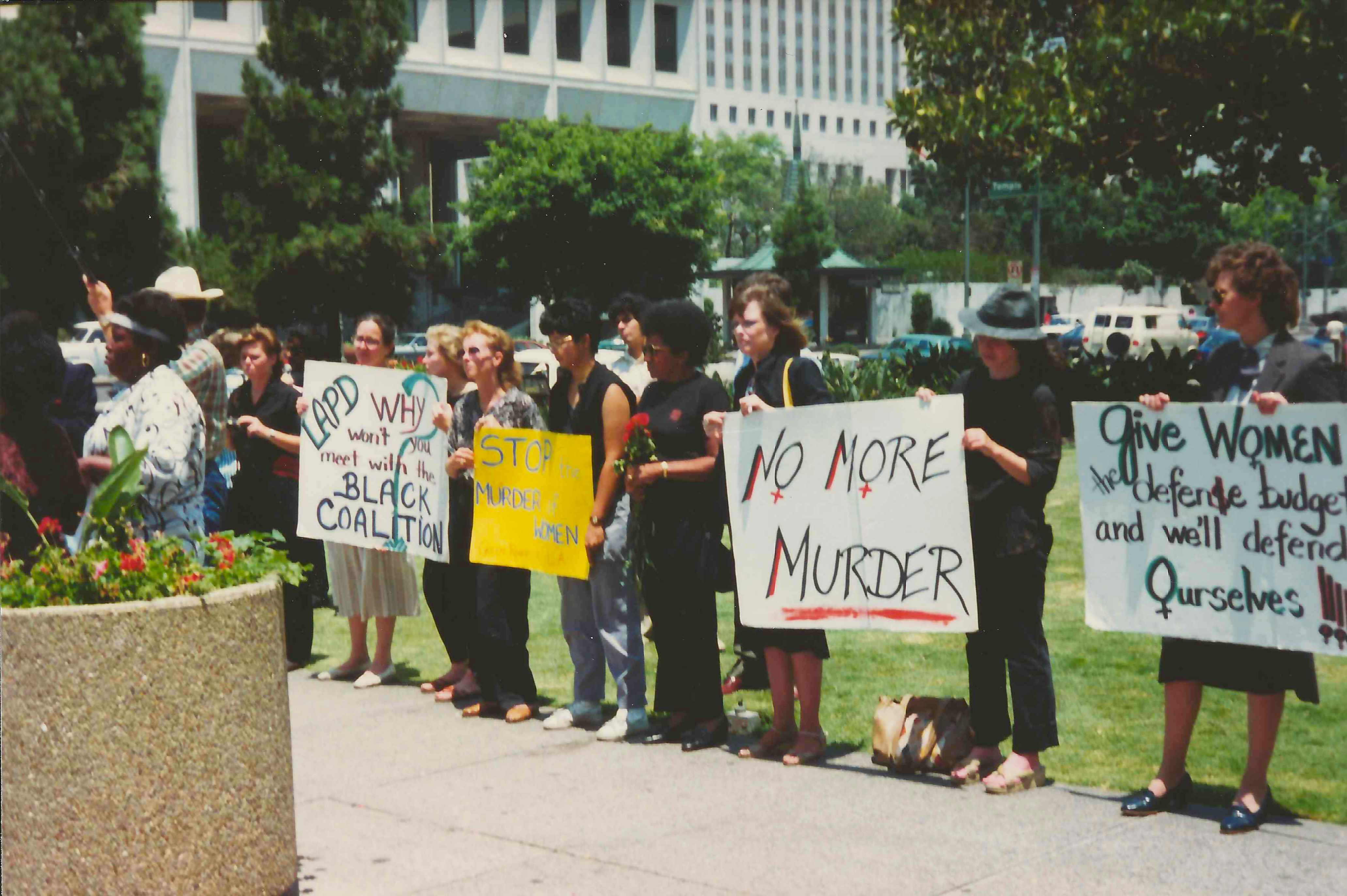
Los Angeles, CA, 1986
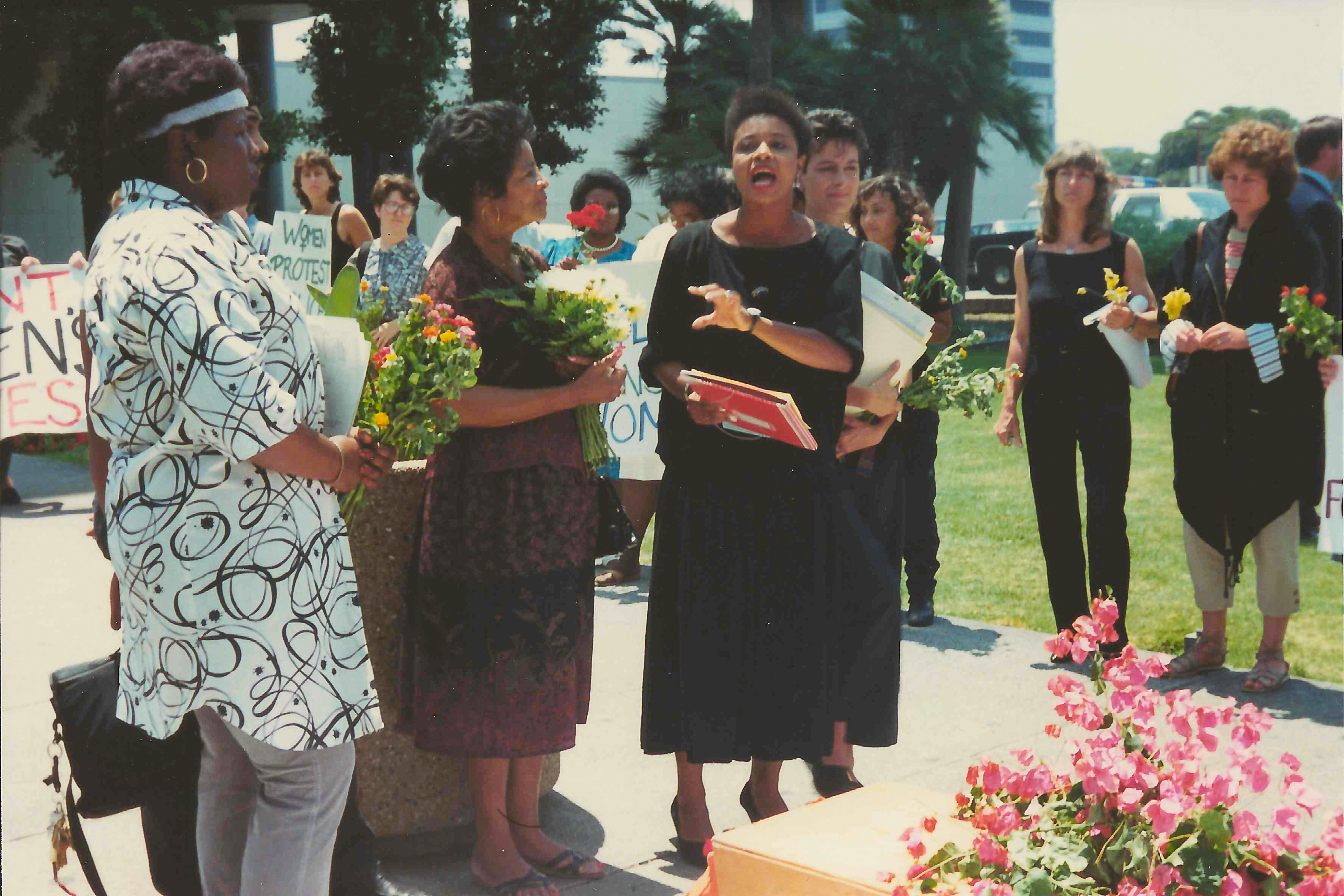
Los Angeles, CA, 1986
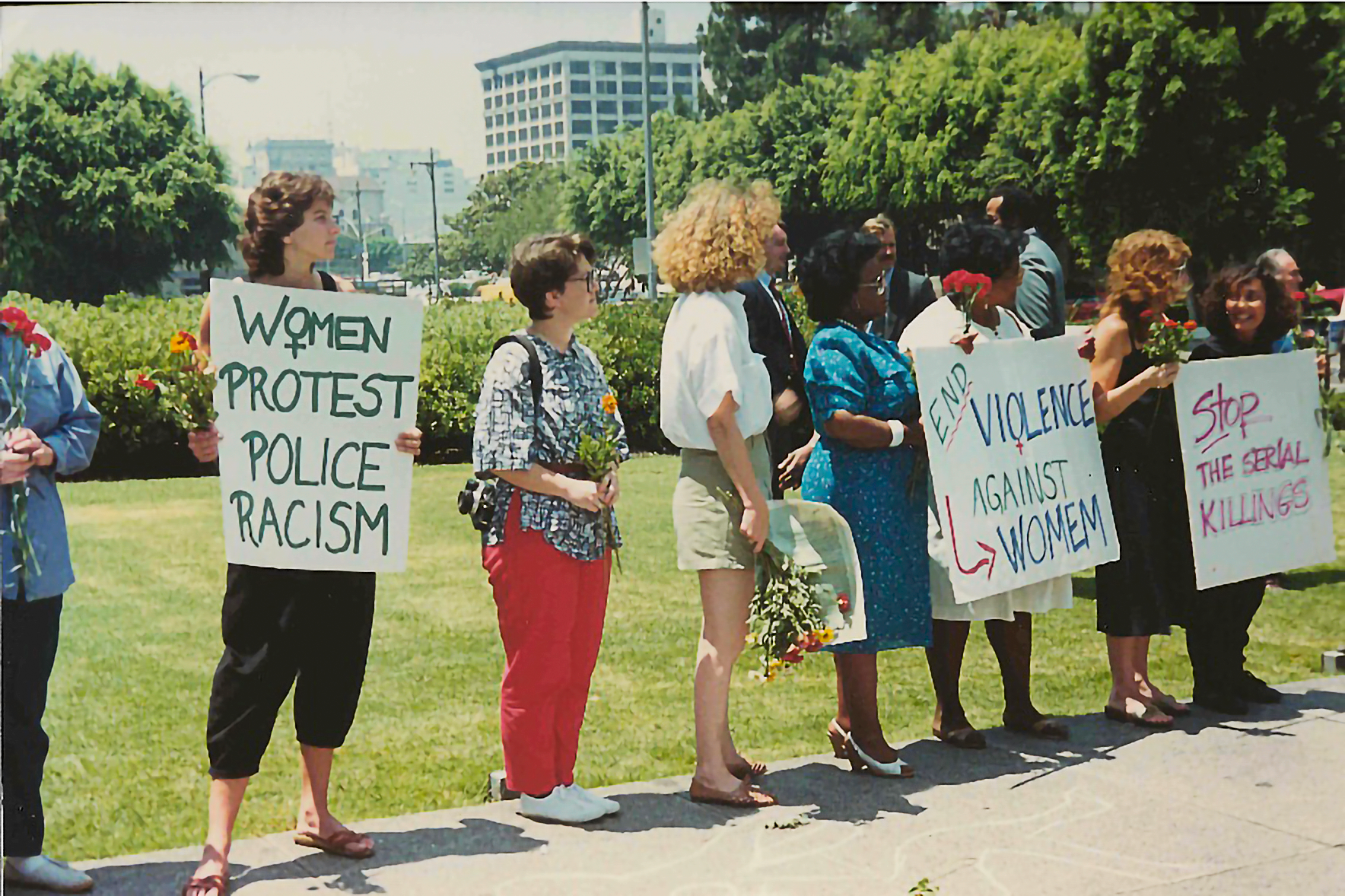
Los Angeles, CA, 1986
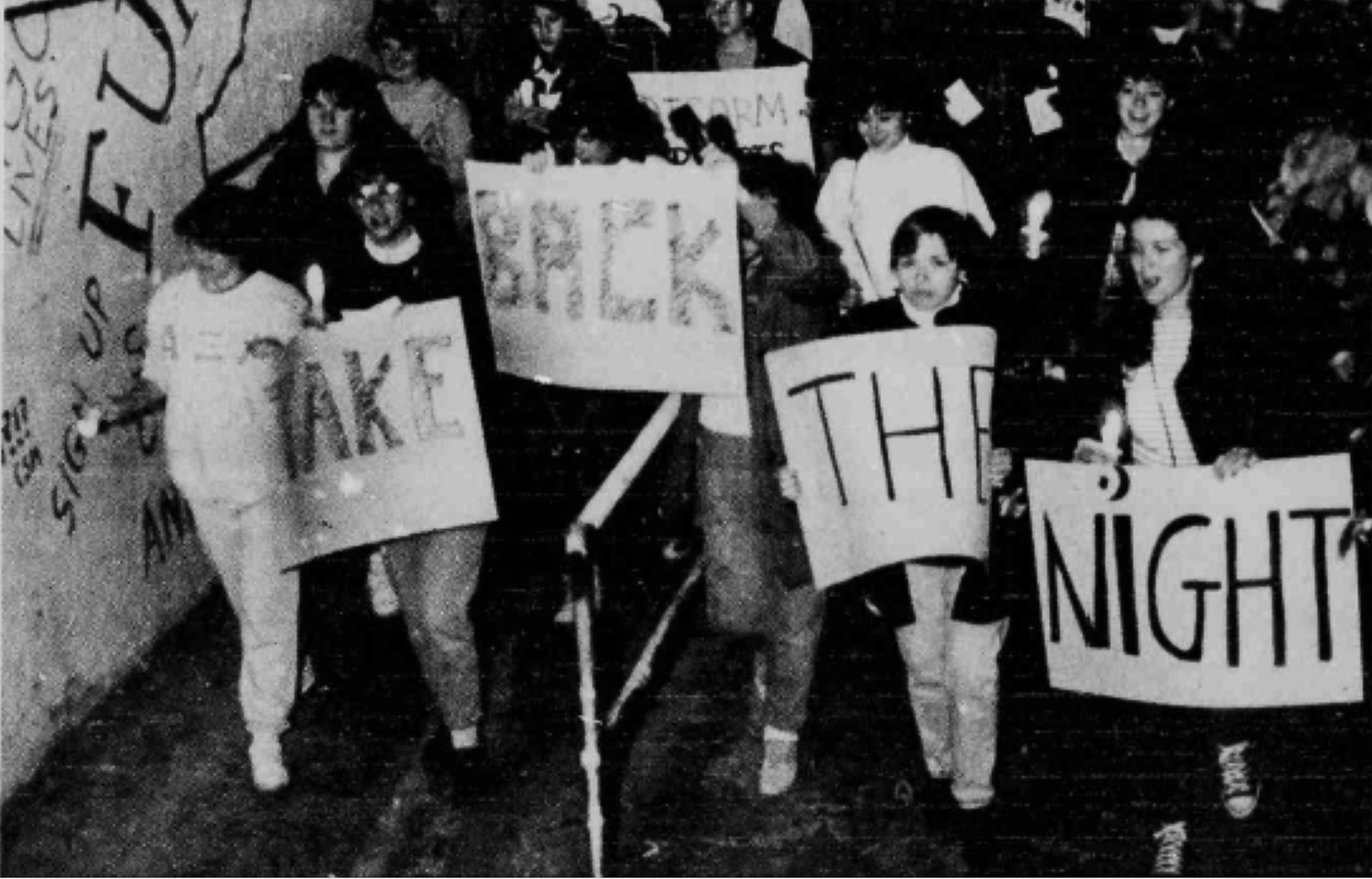
NC State University, Raleigh, NC, 1987; Photo by Marc Kawanish
1970s
In the 70s, incidents of violence against women in Philadelphia, San Francisco, and Los Angeles garnered media attention. In 1972, women at the University of Southern Florida donned witches’ brooms and black capes, marching through campus to demand resources and safety for women. In 1973, San Francisco citizens protested violent “snuff” pornography films. In 1975, Philadelphia residents rallied after microbiologist Susan Alexander Speeth was stabbed to death on a sidewalk after work. In 1976, a Tribunal Council of women from 40+ countries met in Belgium to advocate for the safety of women on the street.

Philadelphia Inquirer, 1975
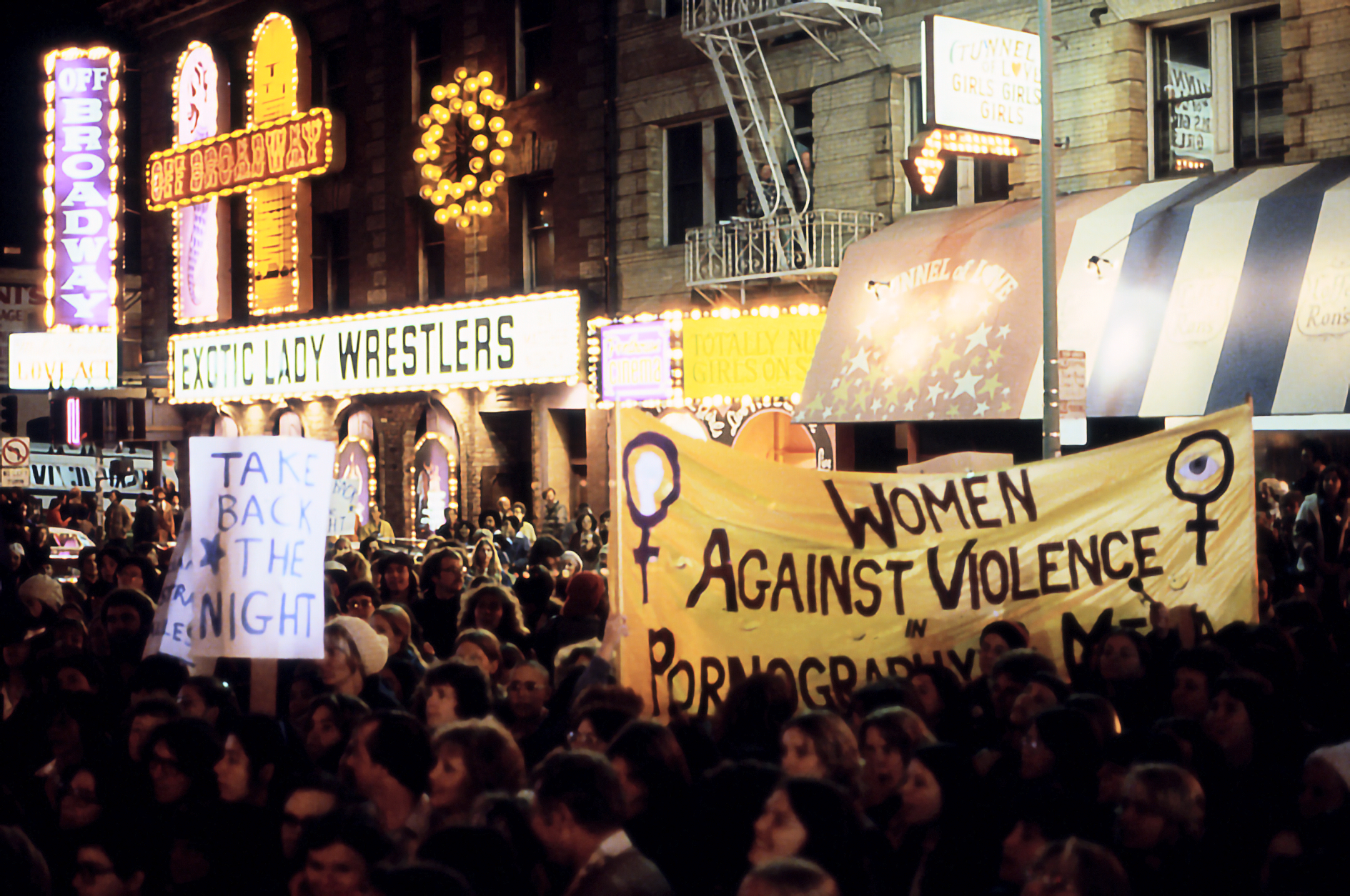
San Francisco, 1978; Photo by Suzanne Lacy
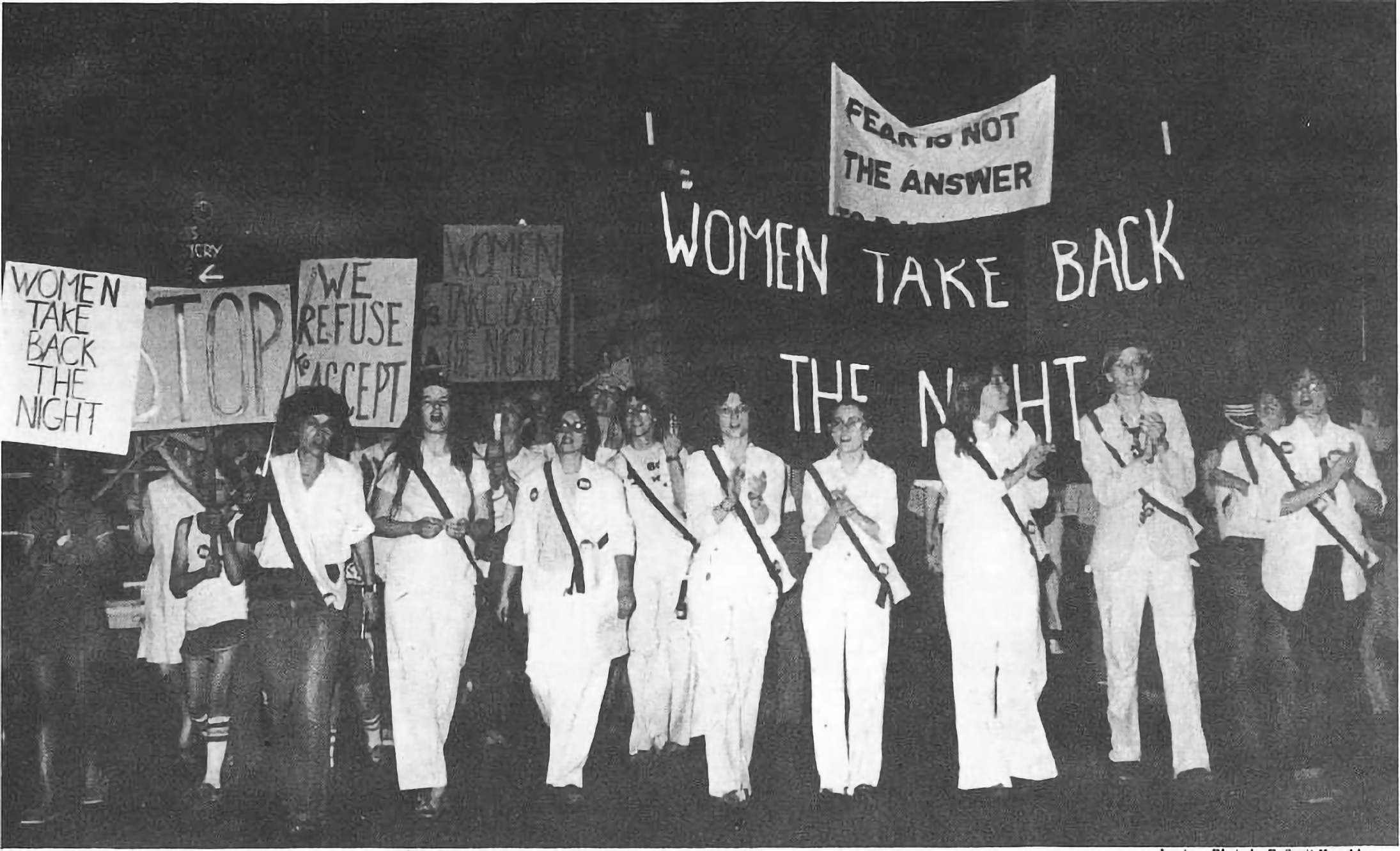
Ohio State University, Columbus, OH, 1979; Photo by Scott Krupkin
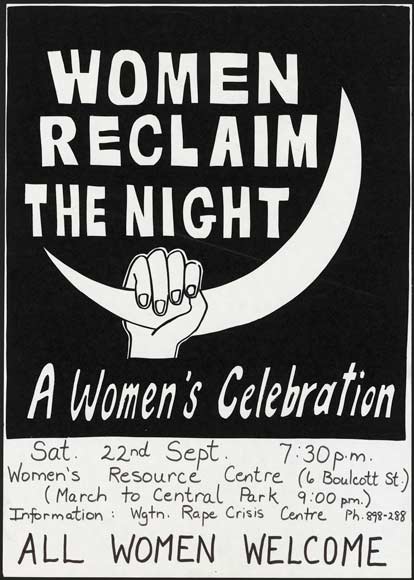
Wellington, New Zealand, 1979

